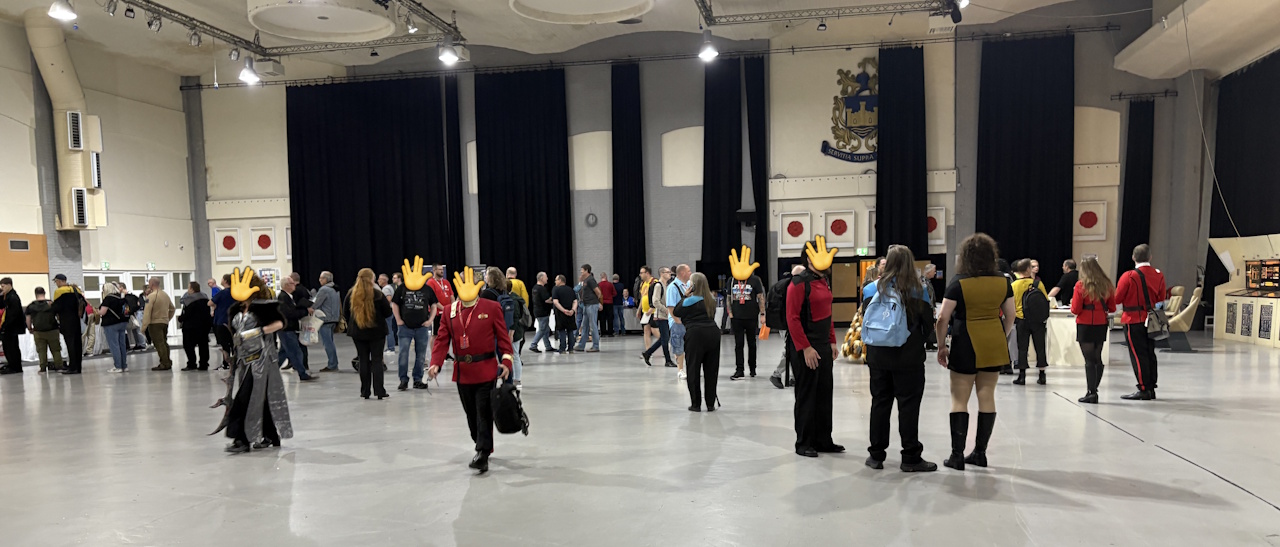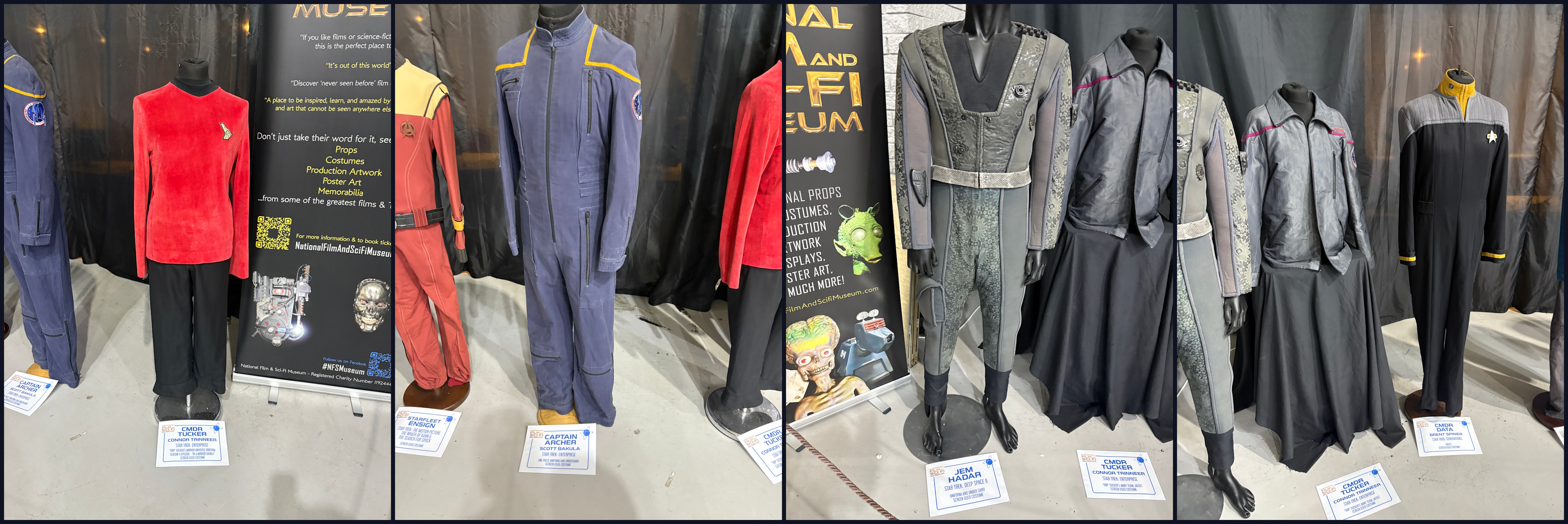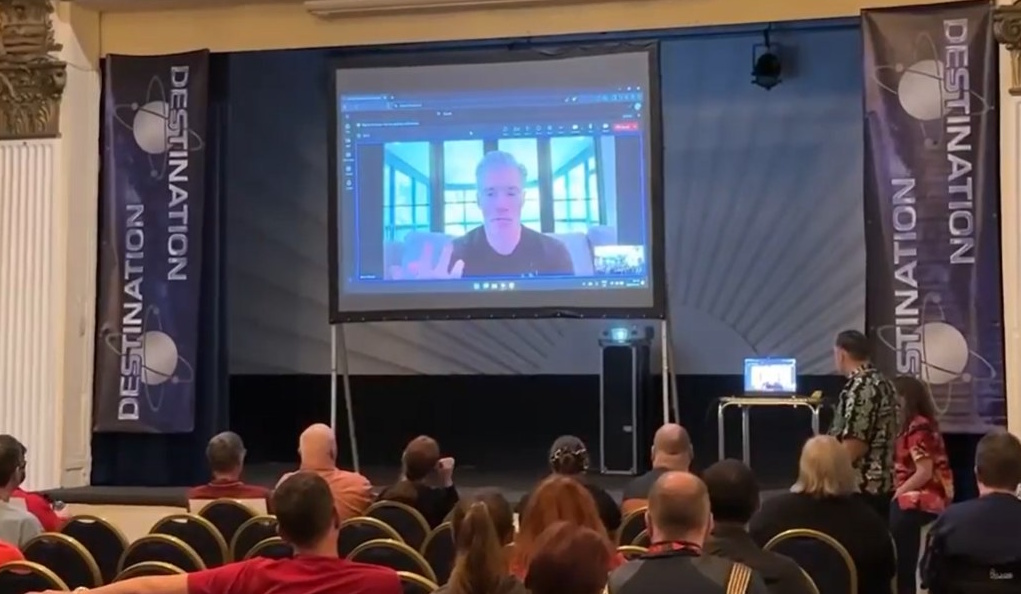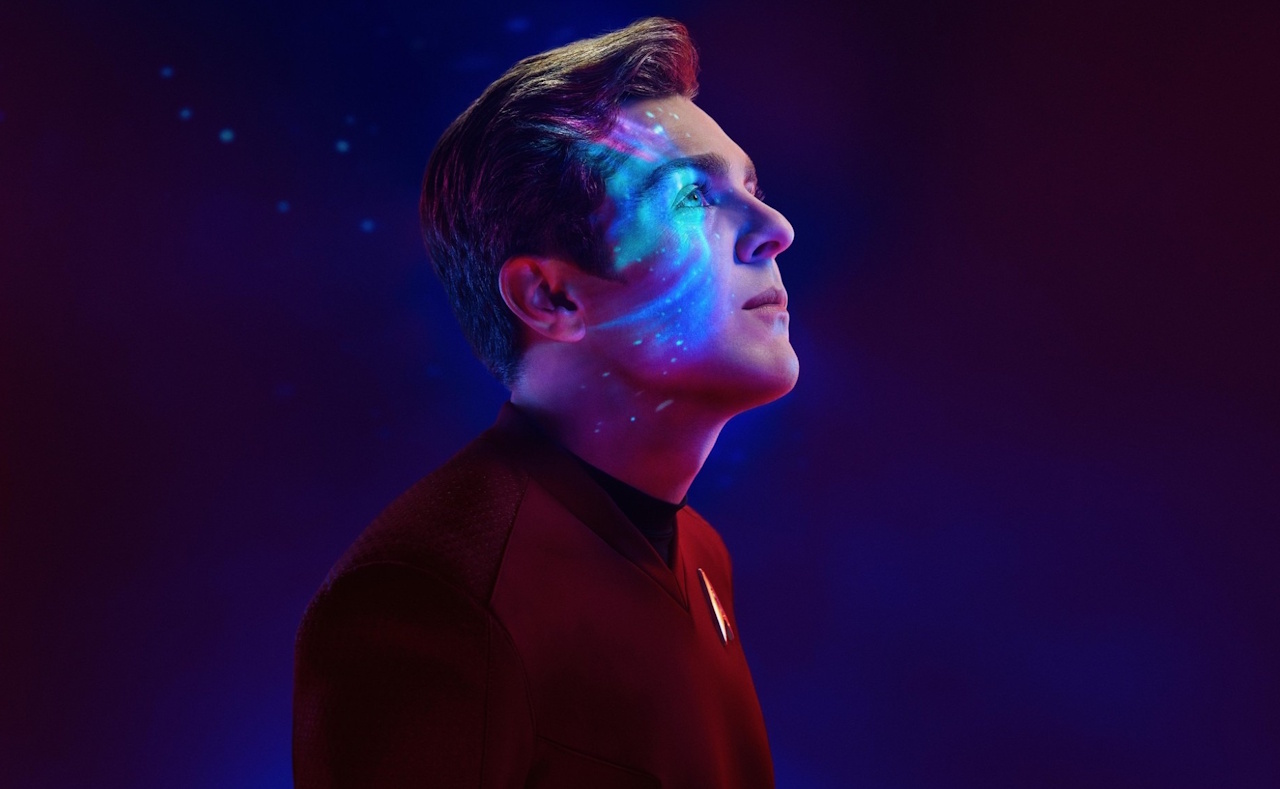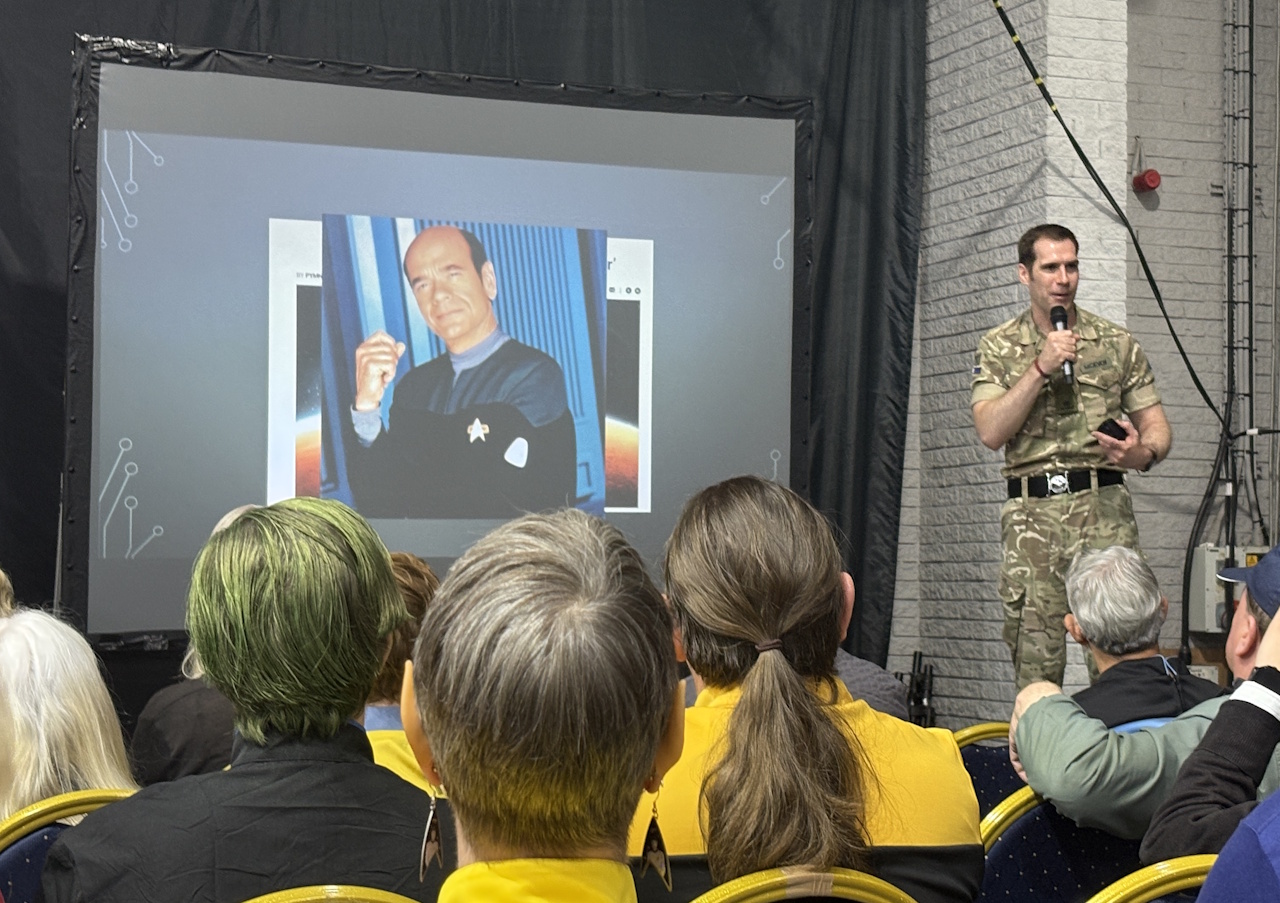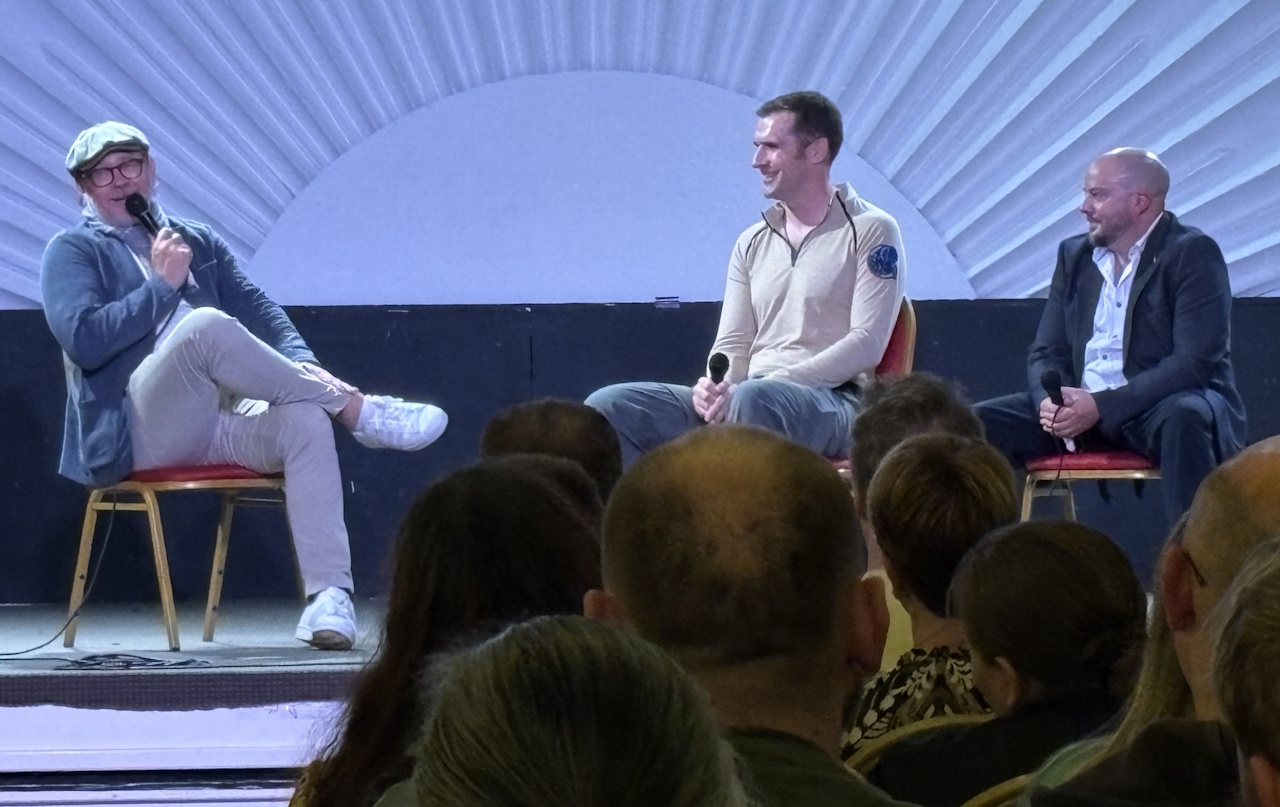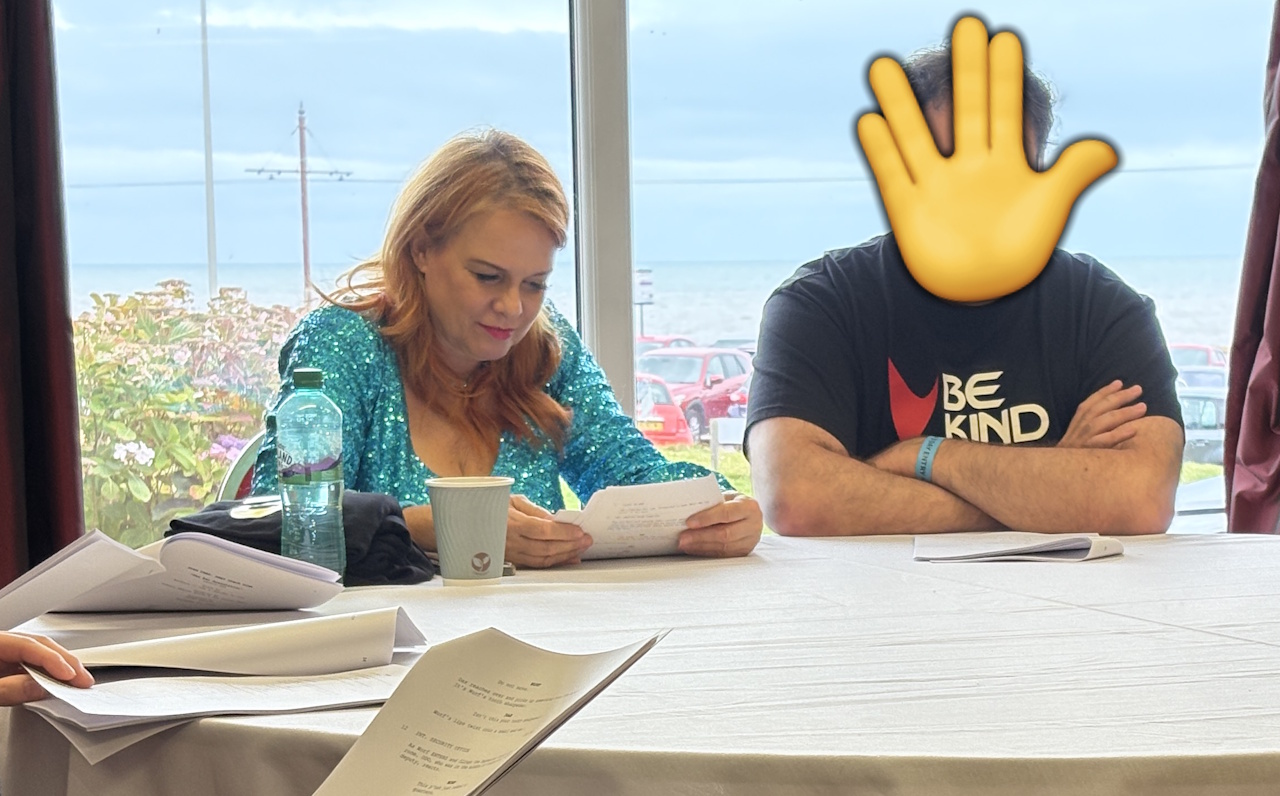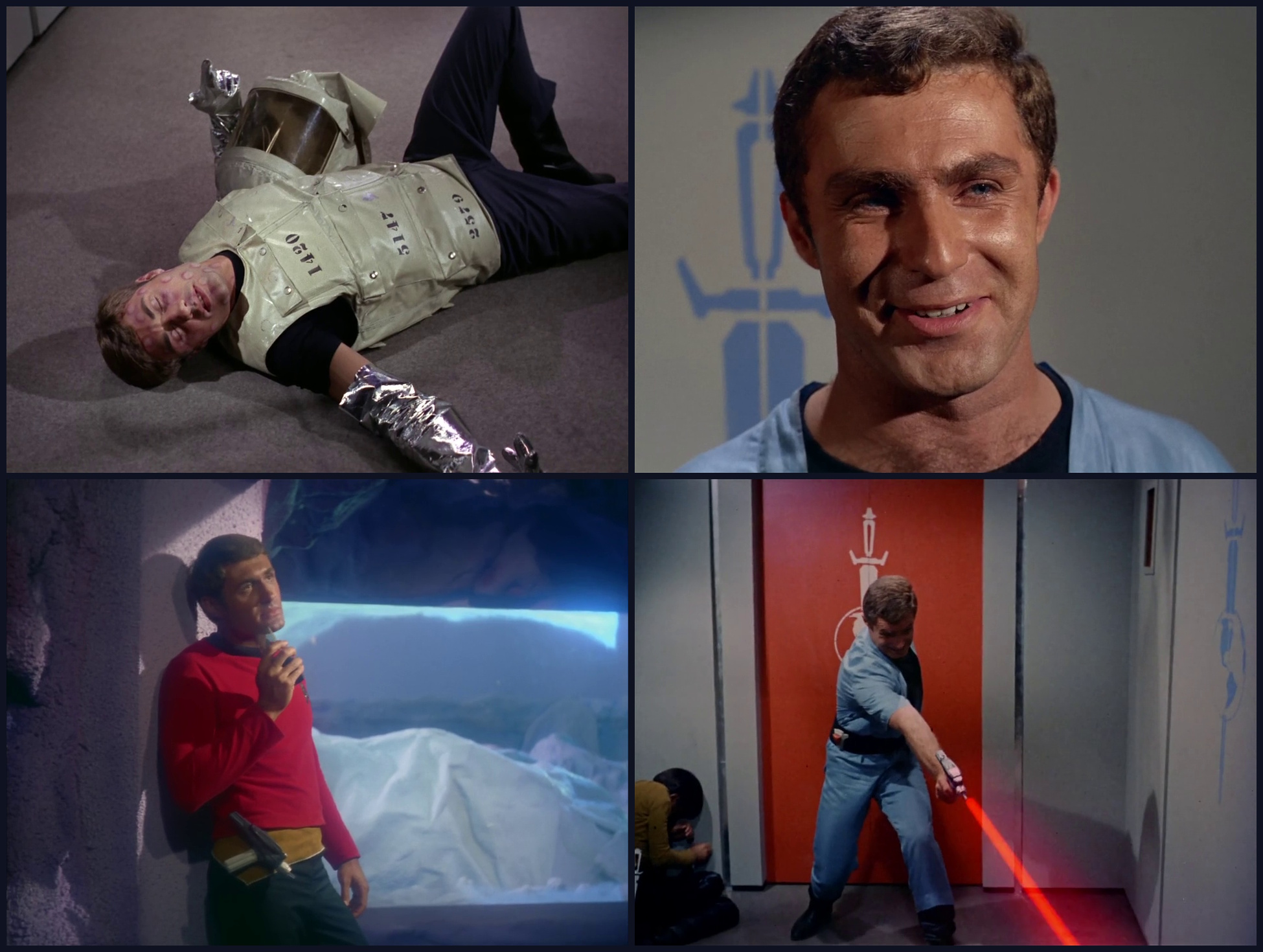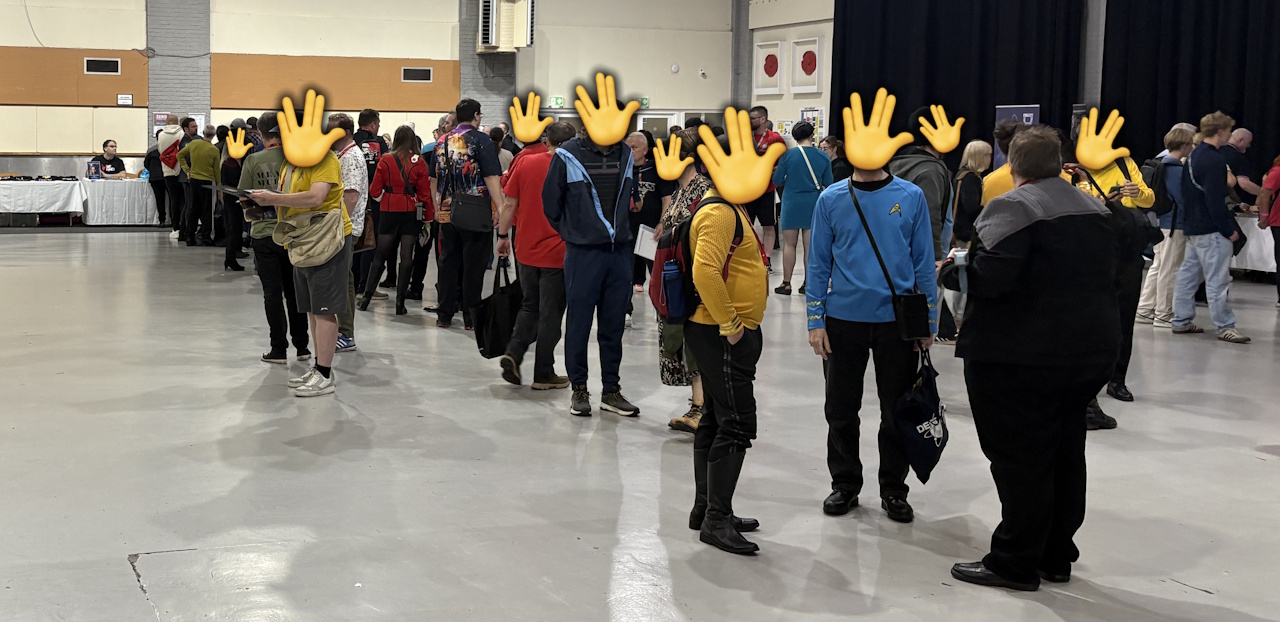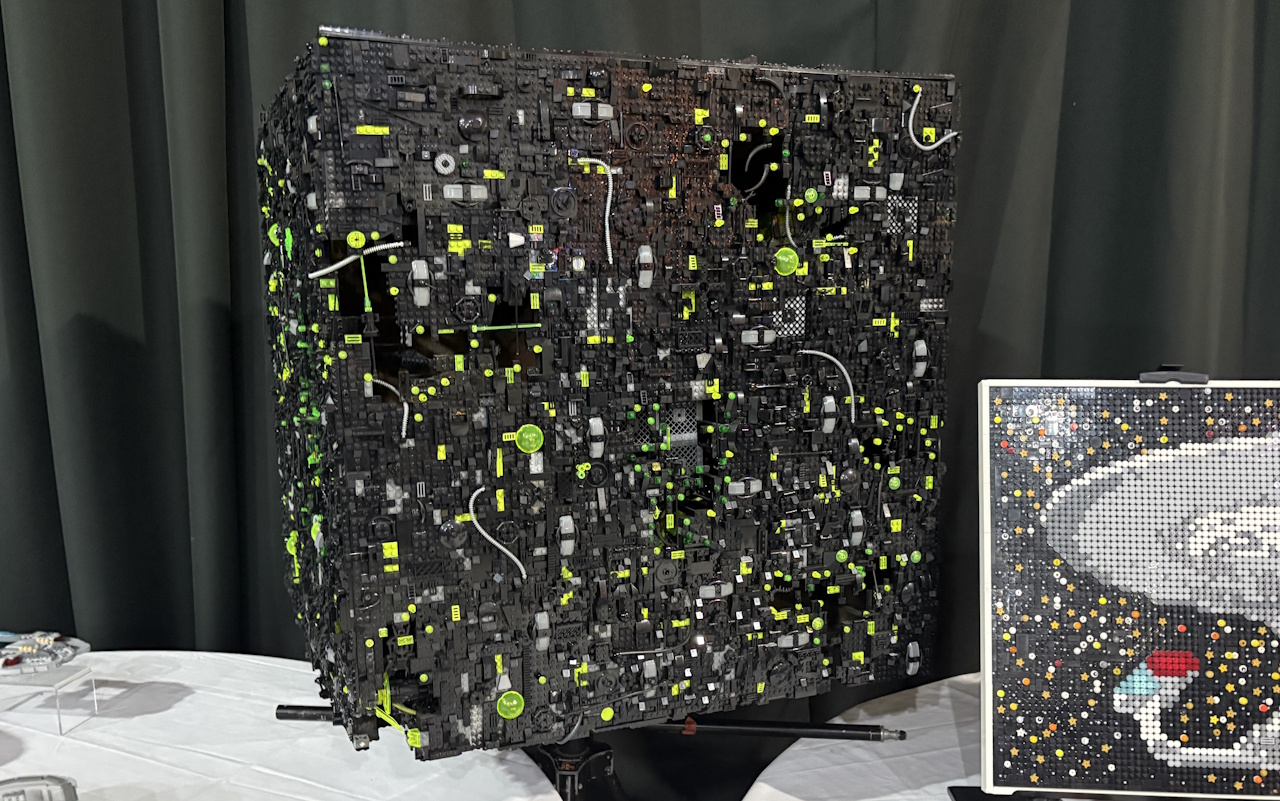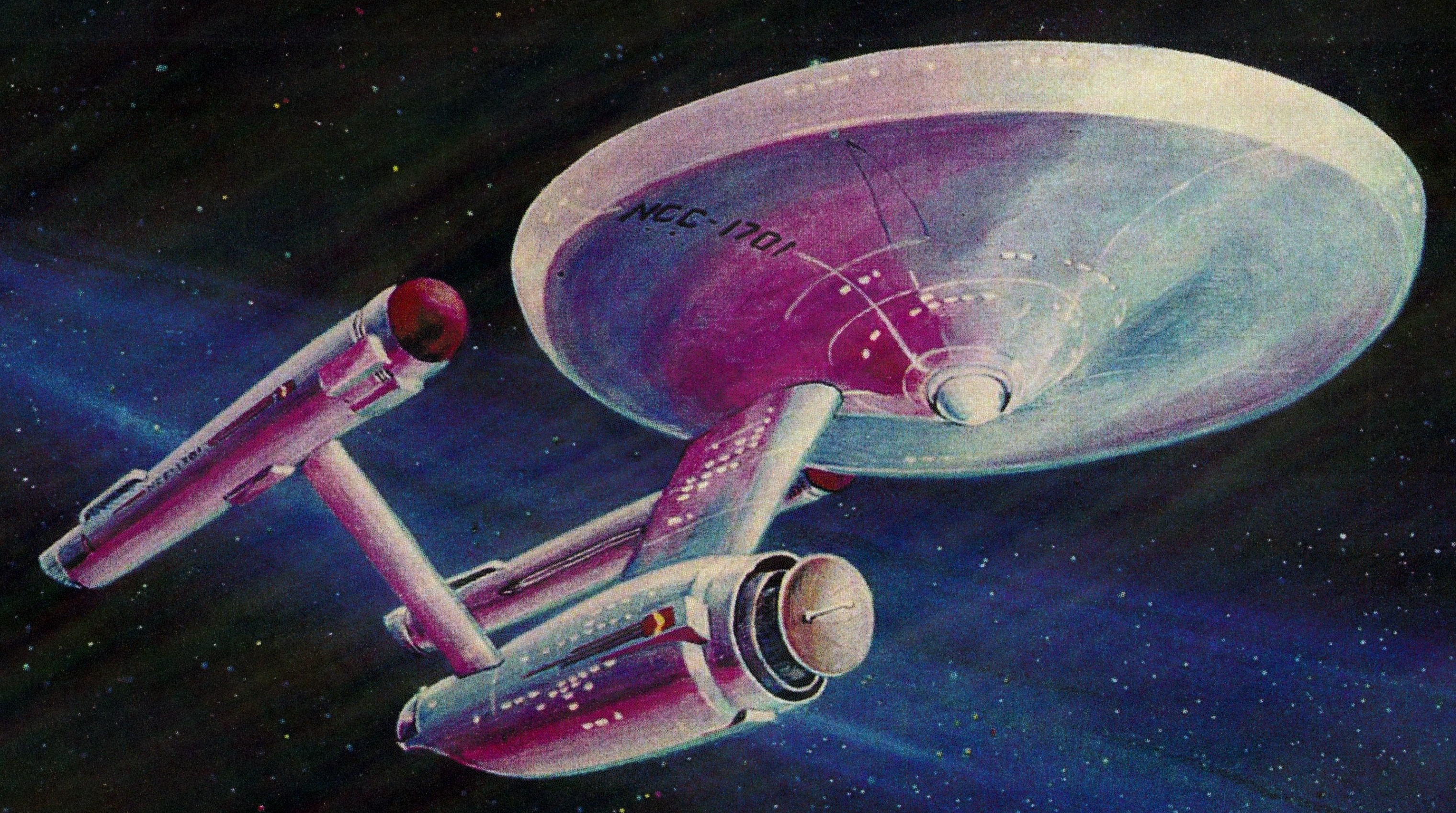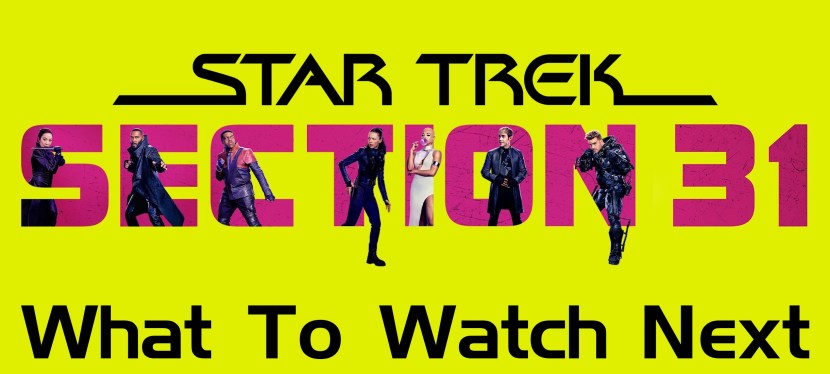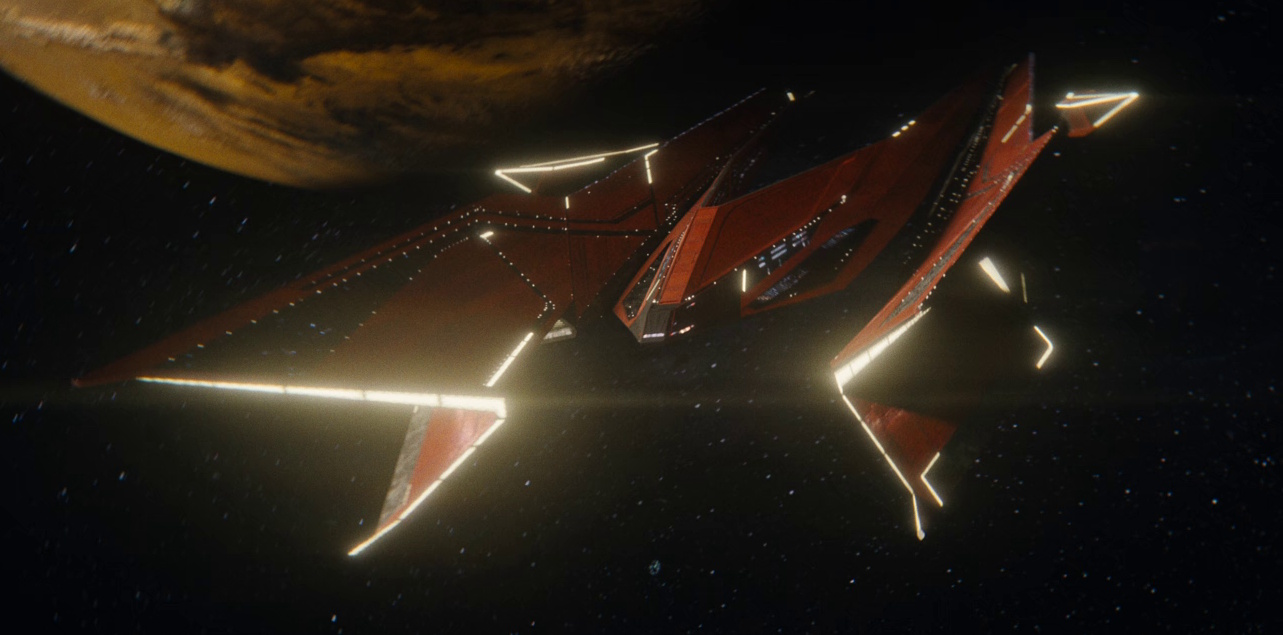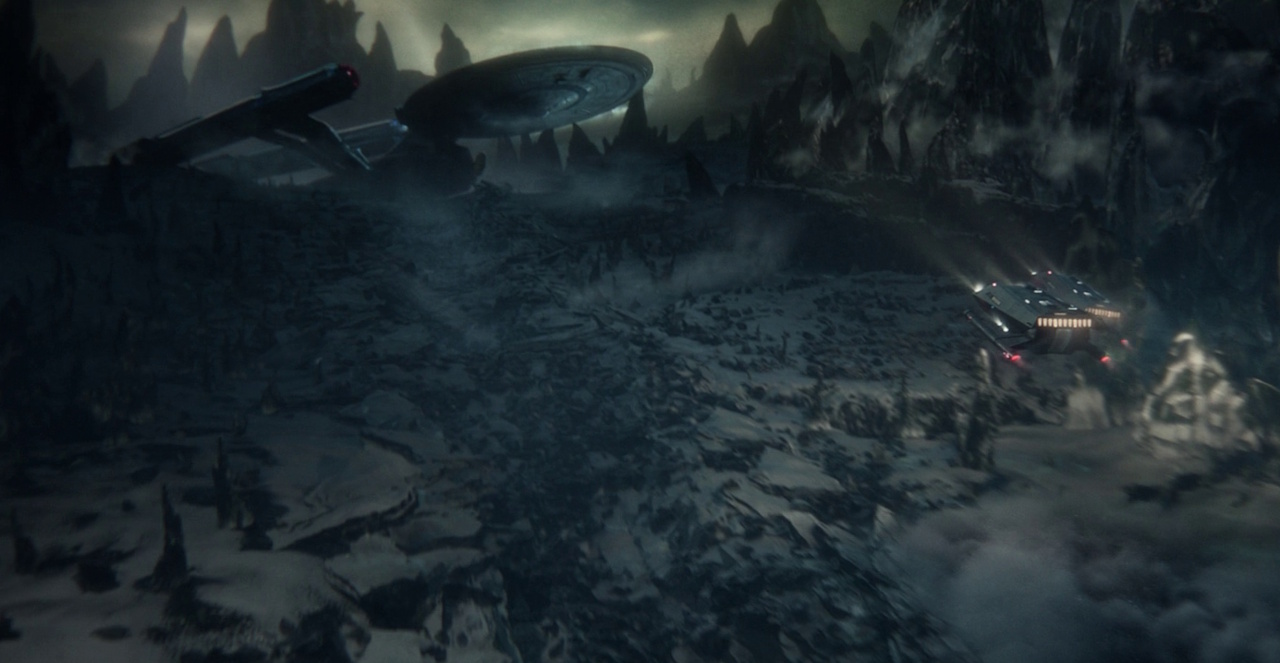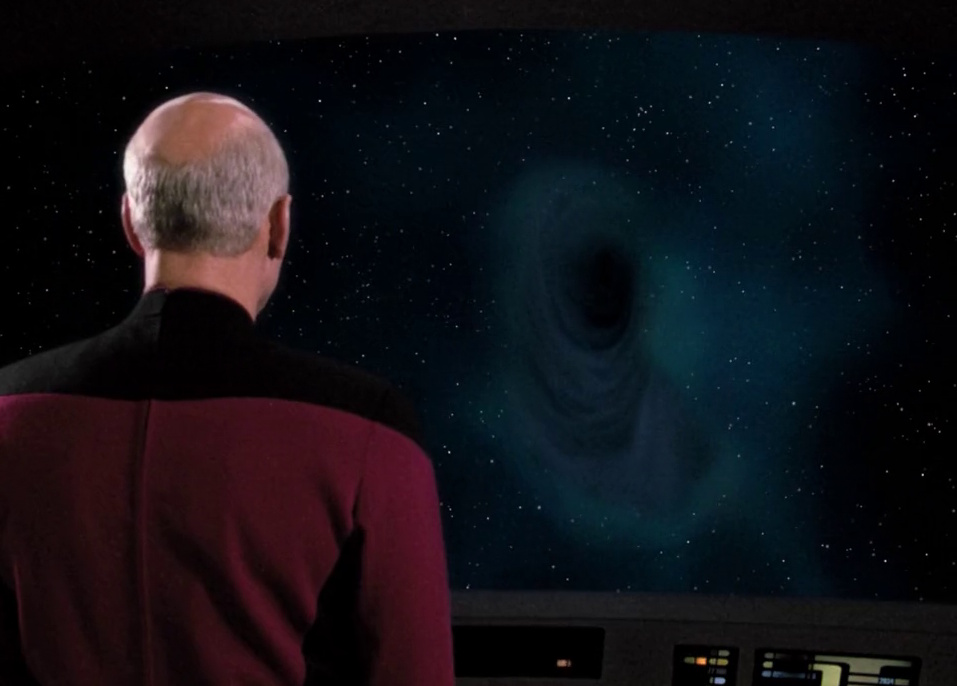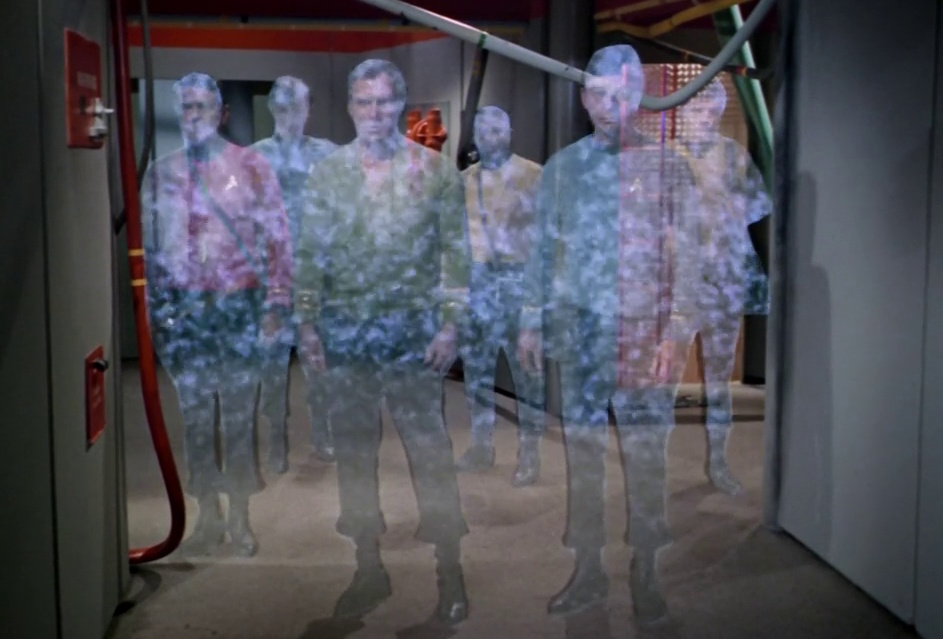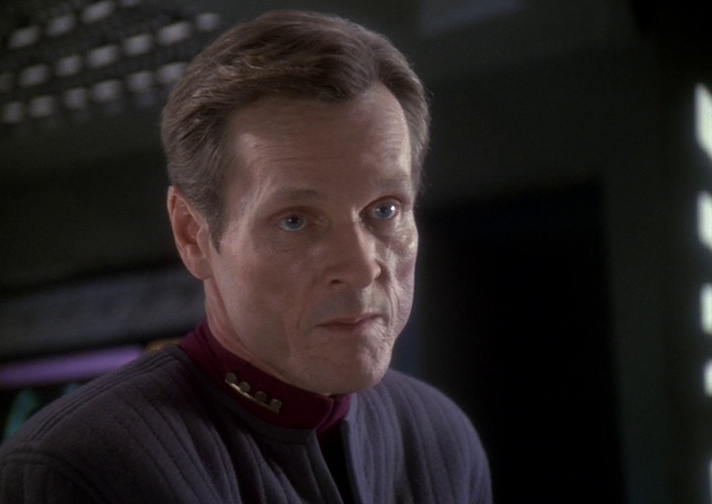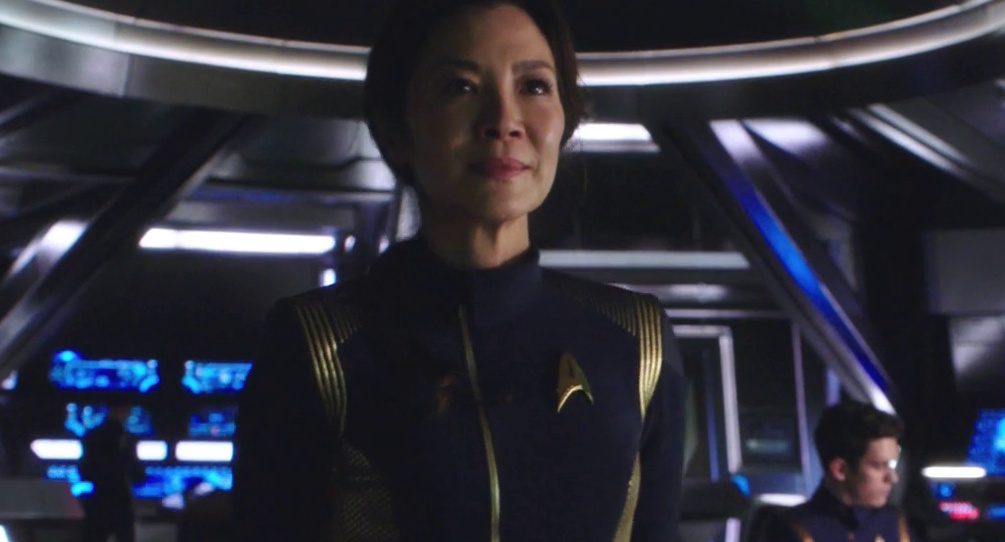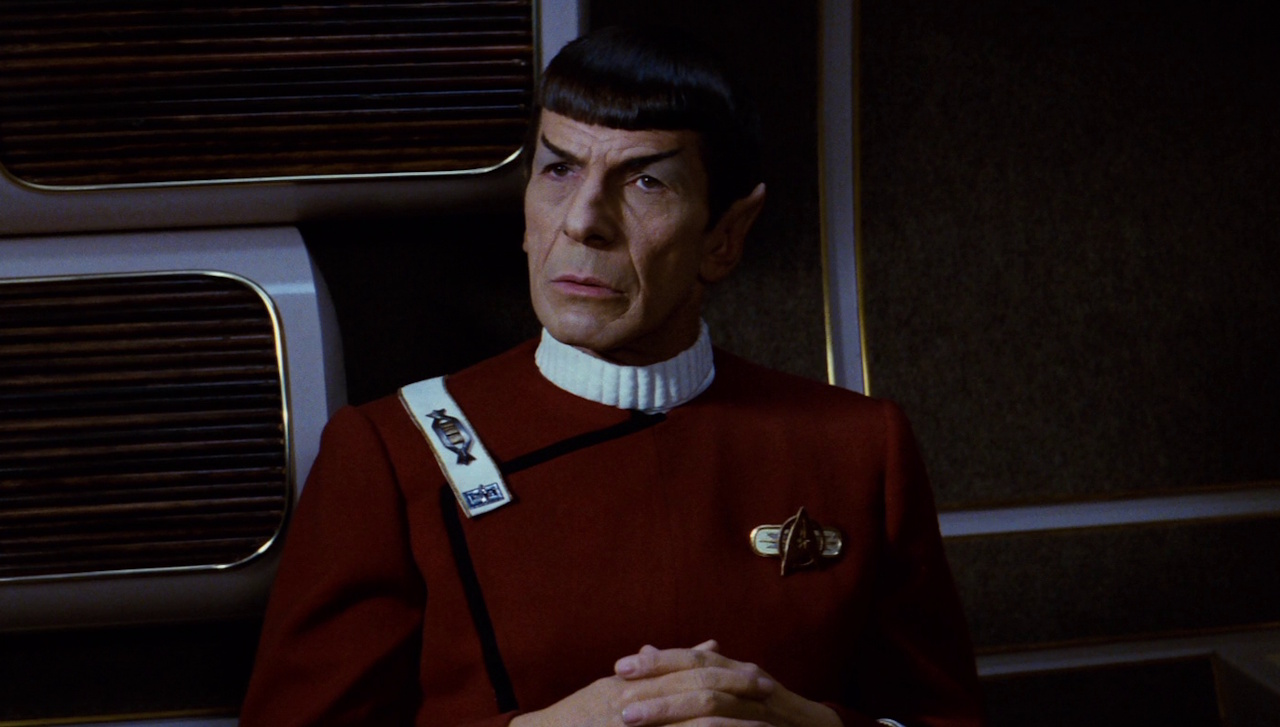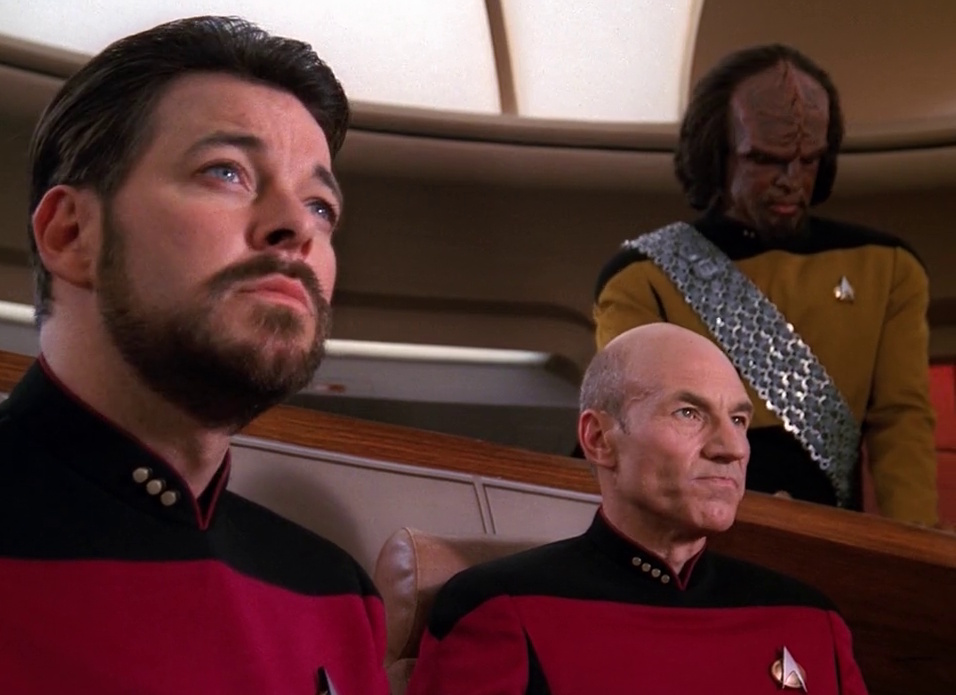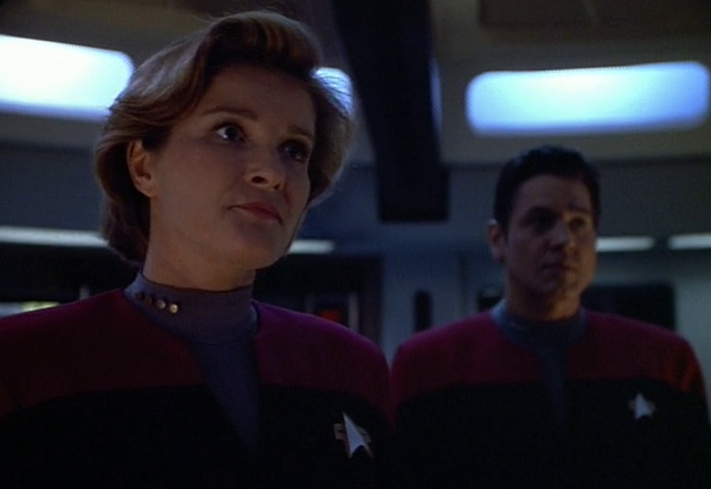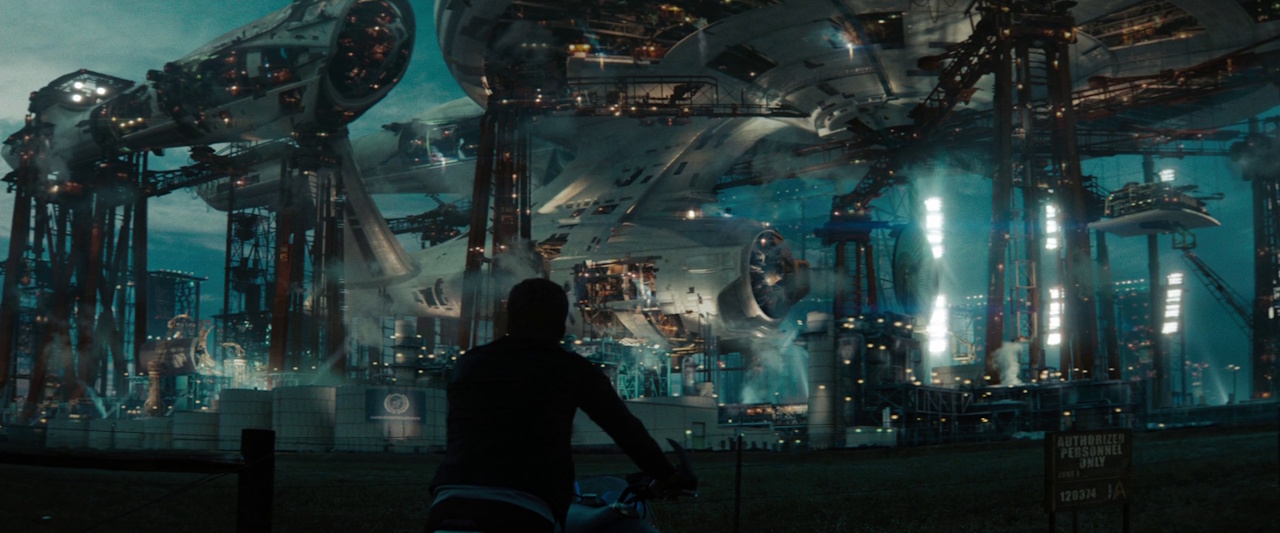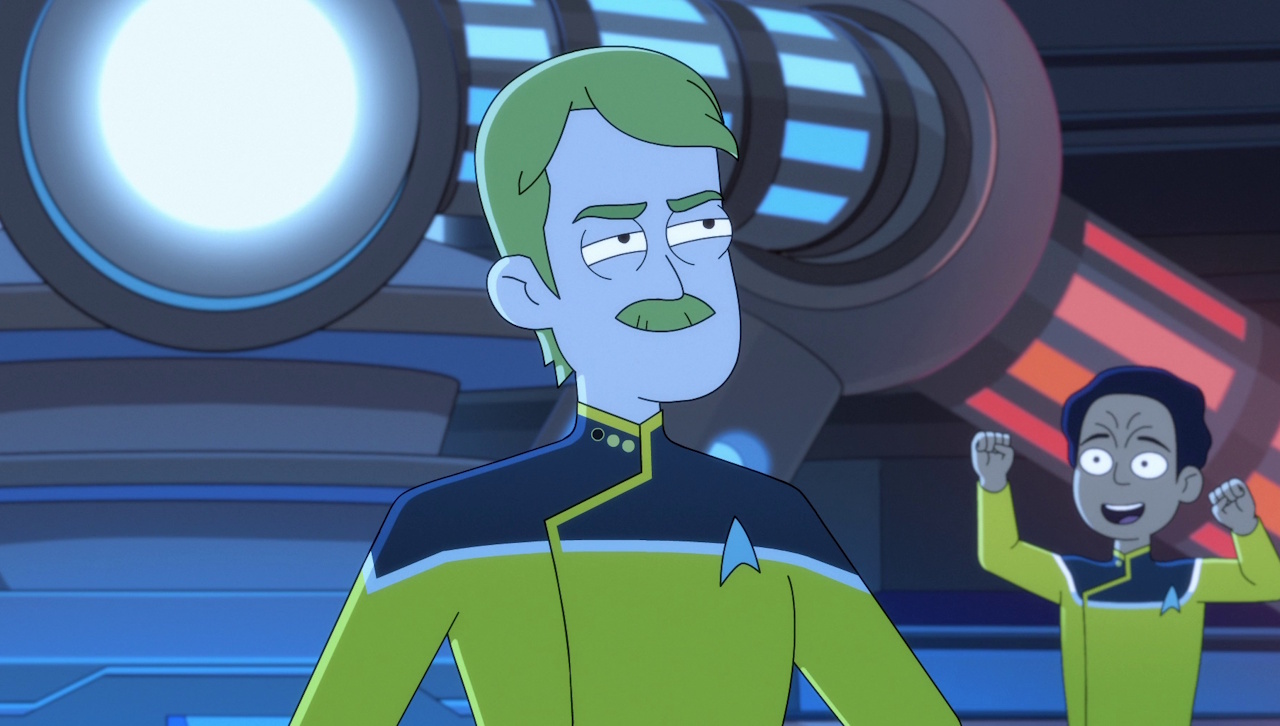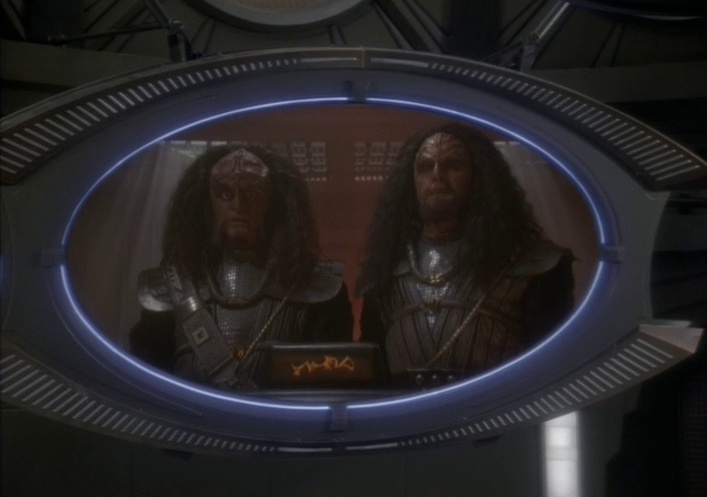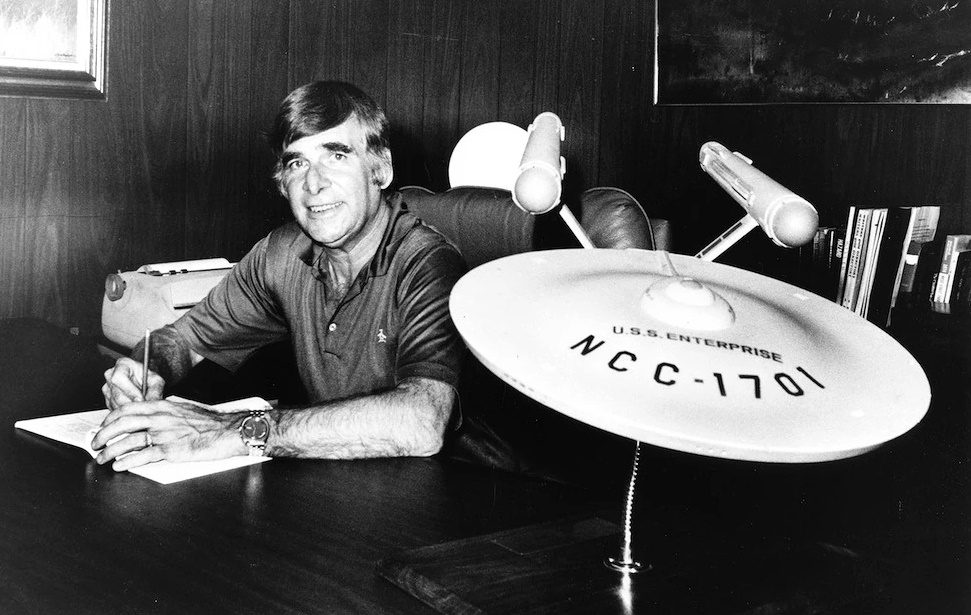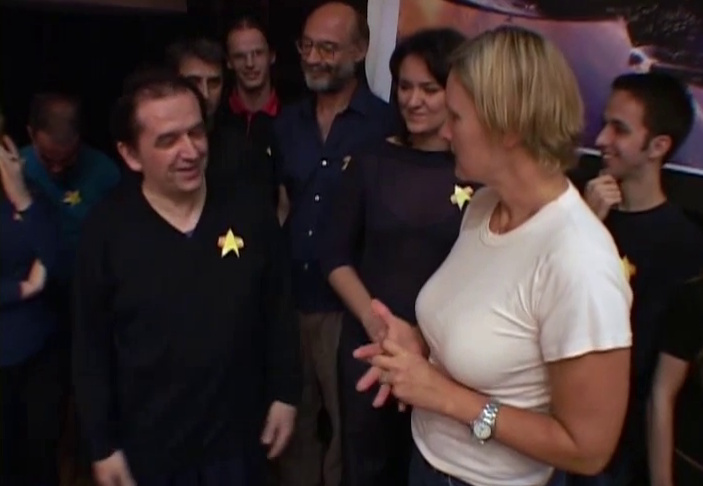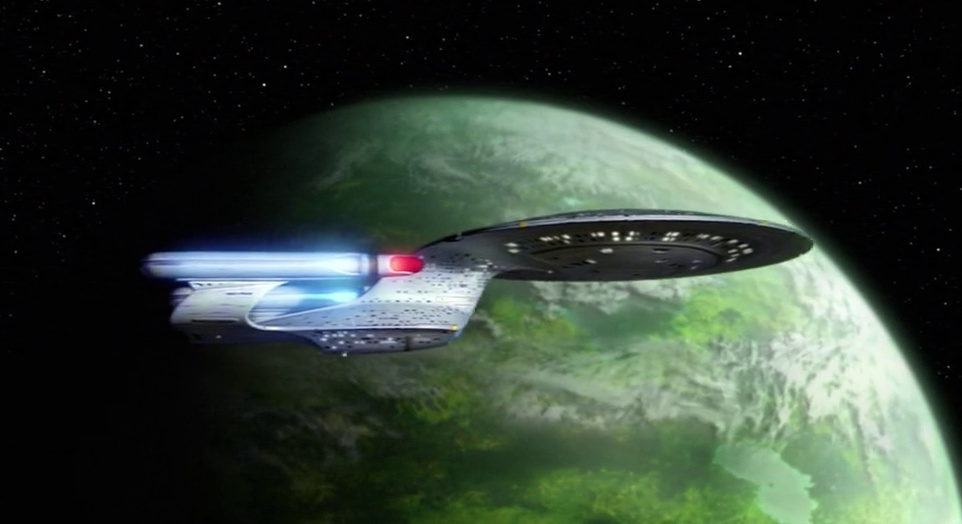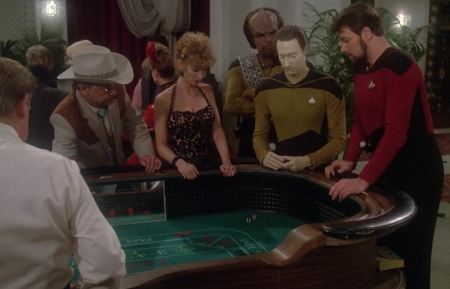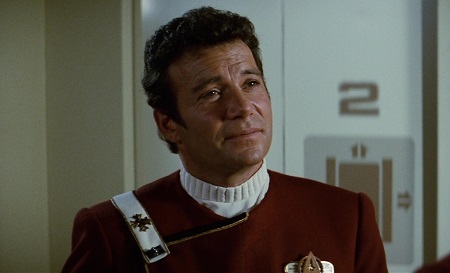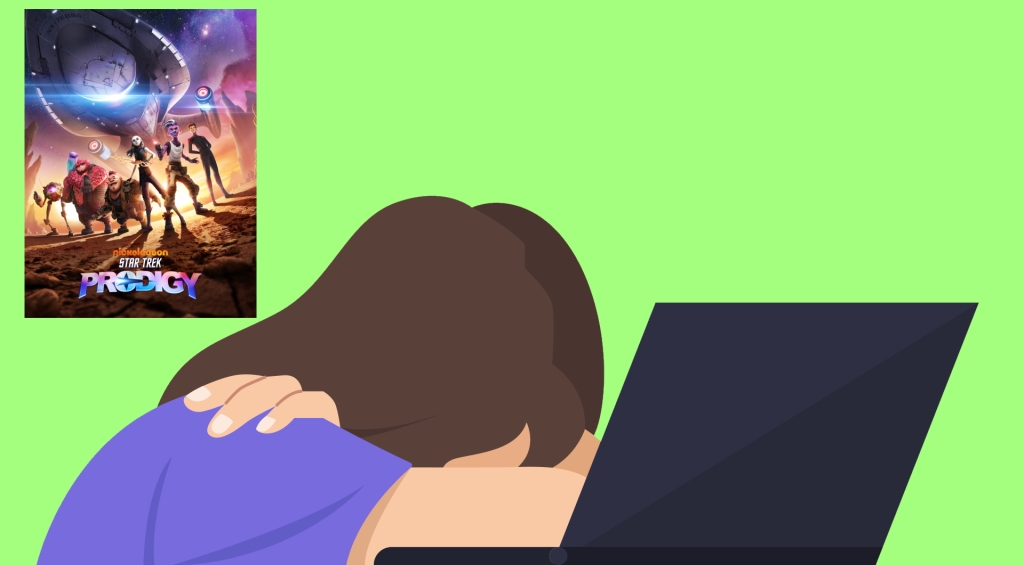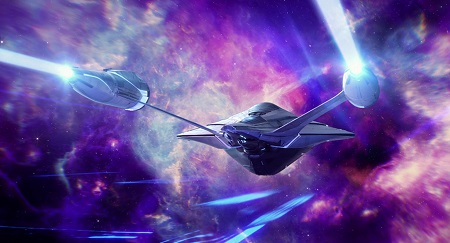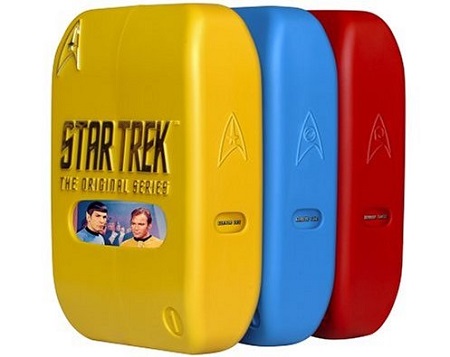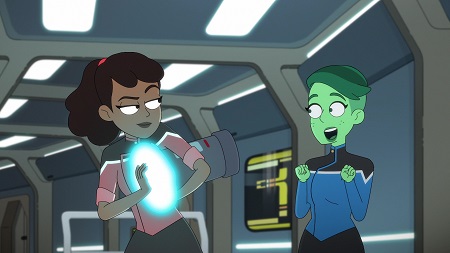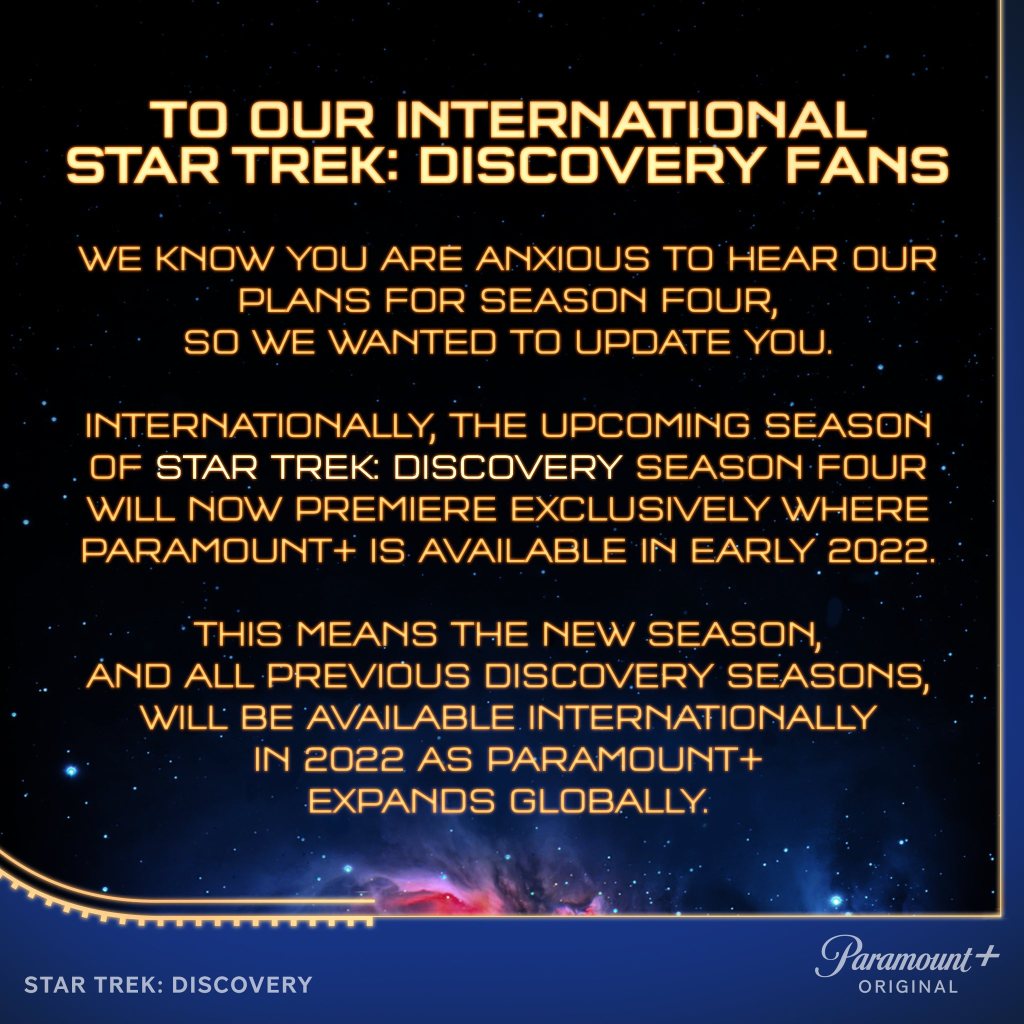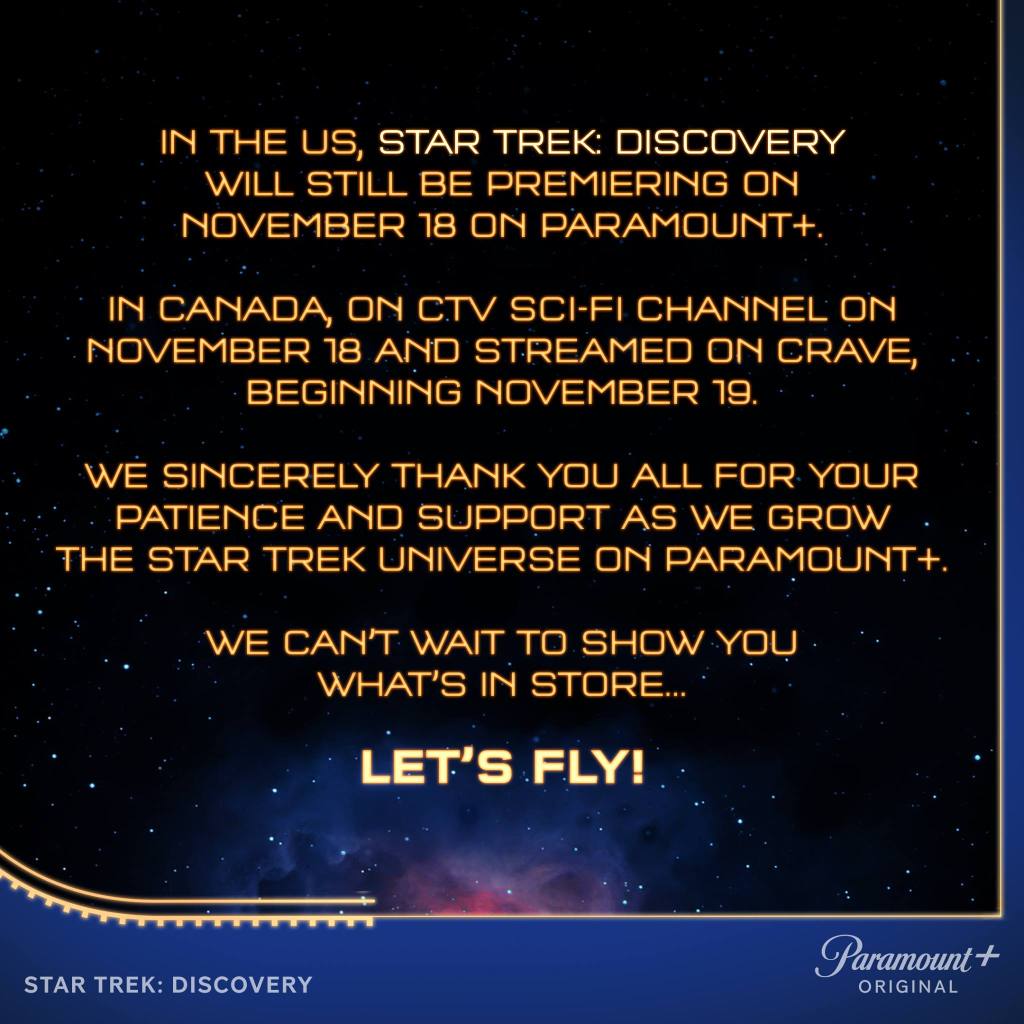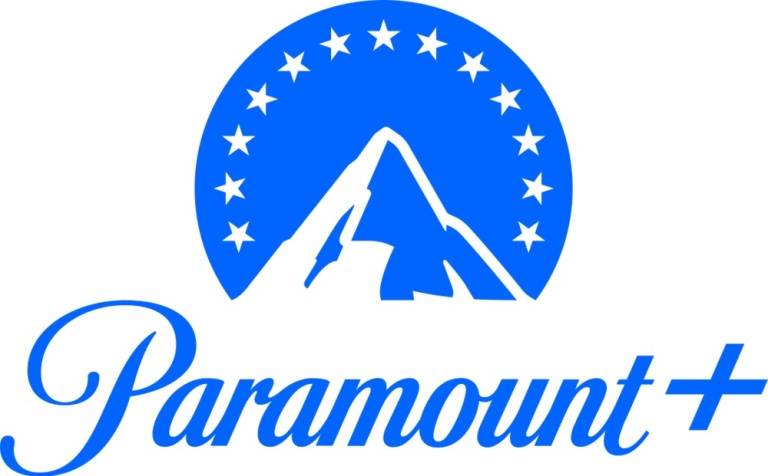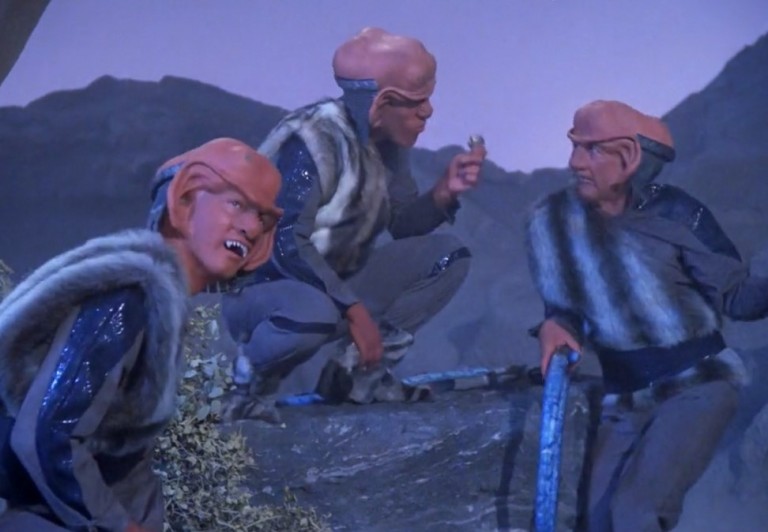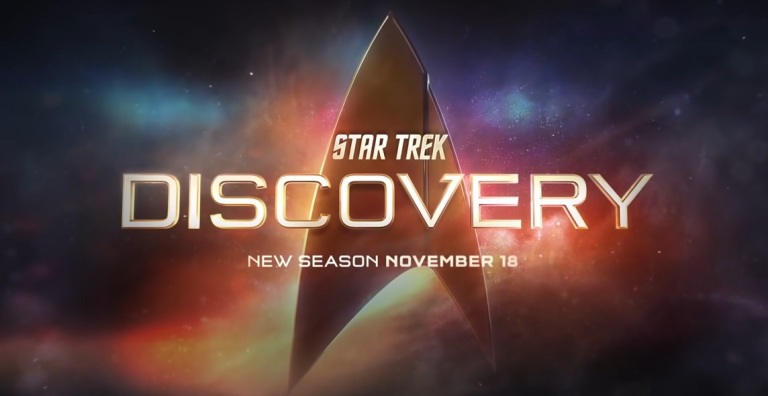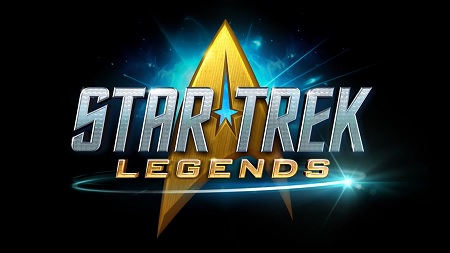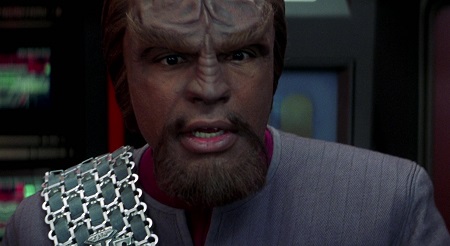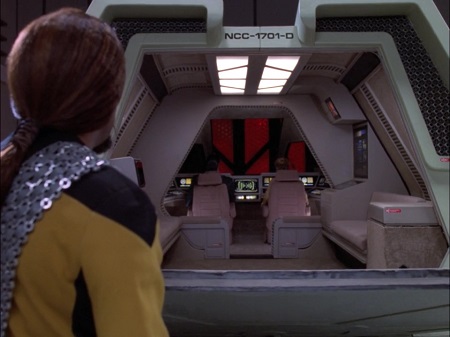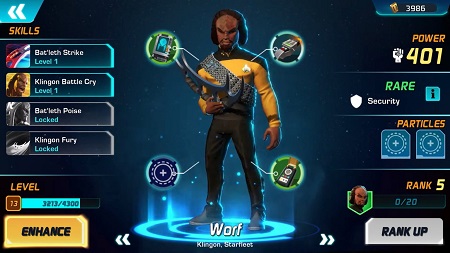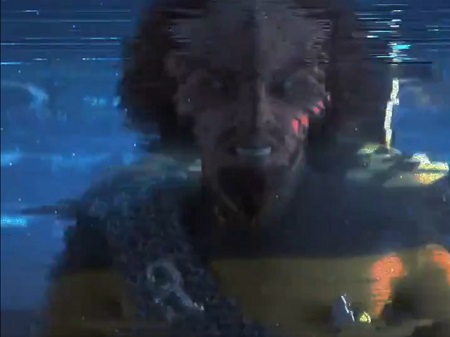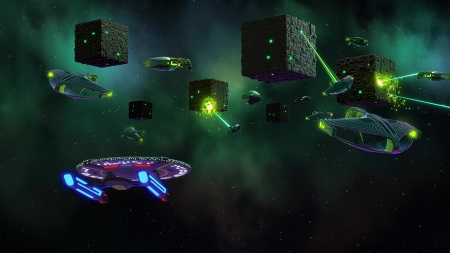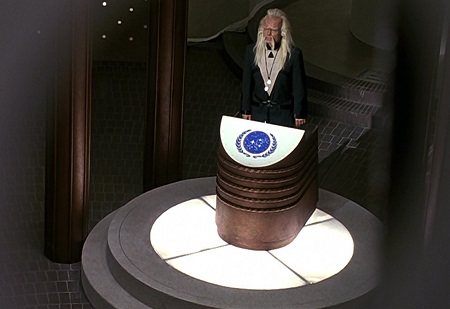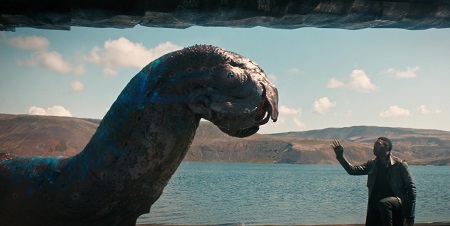
Spoiler Warning: There are spoilers ahead for practically the entire Star Trek franchise, including recent seasons of Picard, Strange New Worlds, and Starfleet Academy.
I like to engage in a bit of theory-crafting here on the website! If you’re a regular reader, you might’ve followed along with my weekly Discovery and Picard theories while those shows were on the air. Or perhaps you clicked on one of my viral theories speculating about Unknown Species 10-C, Q, or Vadic. Or maybe you’re brand-new to Trekking with Dennis… in which case, welcome! But my point is that I like Star Trek fan theories, I write a lot of Star Trek fan theories, and I get a *lot* of things utterly wrong.
I give that caveat for one important reason: this piece, in which I’m going to demolish some fan theories that I’ve found doing the rounds in the online Trekkie community, is meant to be tongue-in-cheek! I’m trying to have a bit of fun with the Star Trek franchise in this landmark sixtieth anniversary year, and picking apart some fan theories I’ve come across on social media seemed like it could be a way to do that. But I’m not taking this too seriously, and you only need look at my own fan theories to see how bad some of them were.
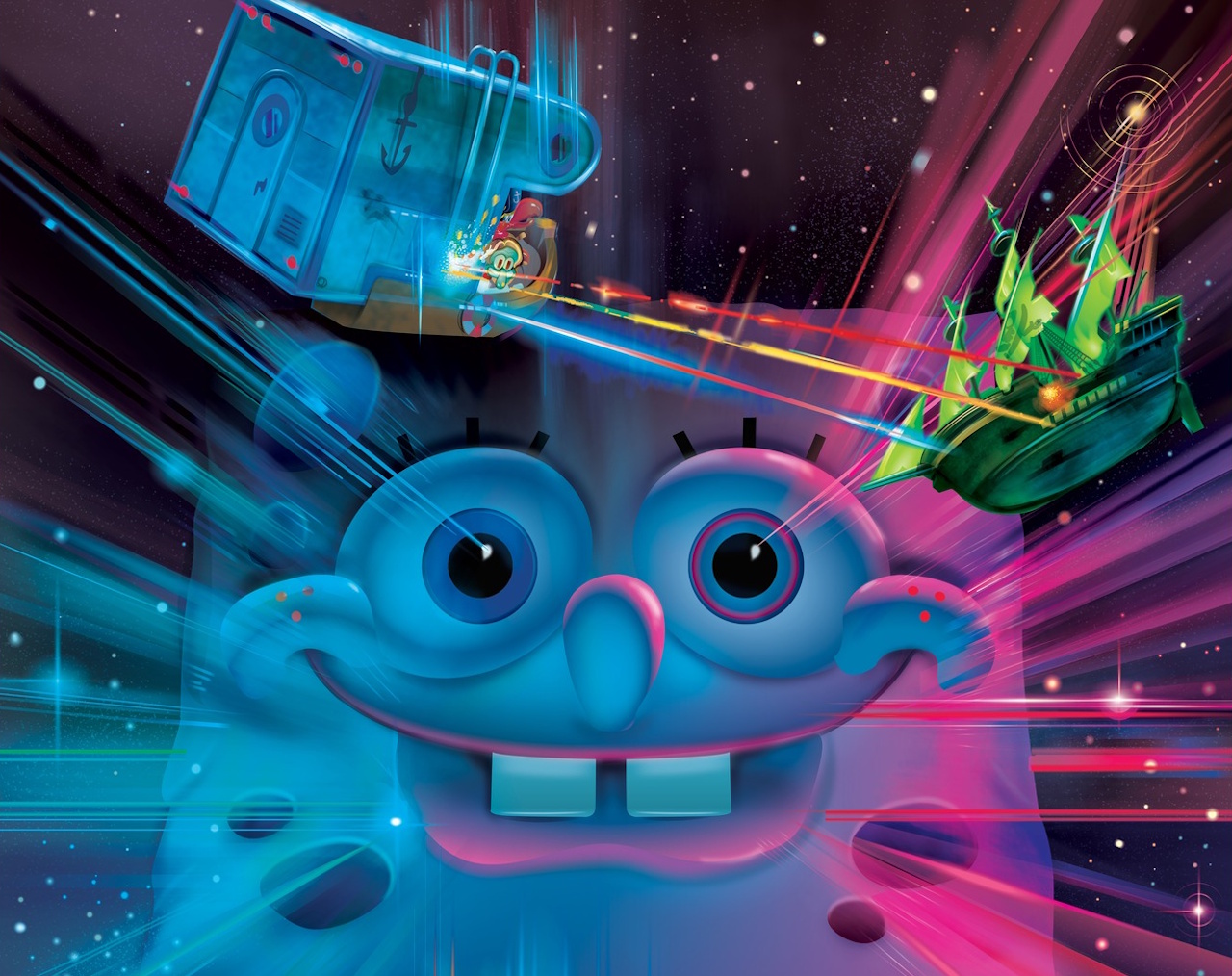
More than ever, I encourage you to keep in mind that this is entirely *subjective, not objective*, and that we’re dealing with non-canonical fan theories which are likely never to be confirmed nor even referenced on screen. This is just for fun, it’s supposed to be a light-hearted exploration of some of the Trekkie community’s “wilder” and more “out there” ideas, and it’s just one person’s take on things, at the end of the day. So please try to keep all of that in mind as we go through these theories!
I visited a few different Star Trek social media pages and channels, collecting twenty-five theories that I thought sounded… well, to be blunt, I thought they sounded kinda silly. Some of these seem to have been written almost as parody, but others did seem to have elicited debate, and clearly have believers. But in any case, all of these made interesting (or weird) points, and I thought breaking them down could be a bit of fun as we continue our year-long celebration of the franchise’s sixtieth anniversary.
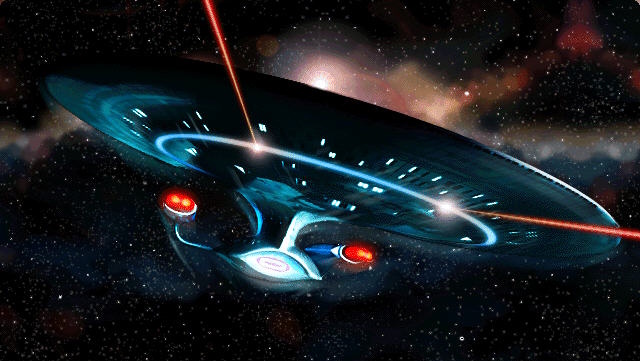
These theories cover all kinds of topics, and span the breadth of Star Trek’s history, from The Original Series all the way through to some of the most recent episodes of Starfleet Academy. Some fans have been, shall we say, especially *creative* with their ideas! Which is fantastic. I adore the Star Trek fan community and how passionate folks can be. As I’ve said many times here on the website: crafting a theory is a great excuse to spend a bit more time in Star Trek’s wonderful galaxy, and even though I may disagree vehemently with a theory, I love that Trekkies all over the world are so invested in this franchise.
We’re going to get into the theories now, so consider this your final content warning. This is your last chance to jump ship if you need to avoid spoilers or if you don’t want to come across some potentially controversial Star Trek opinions! The theories below are in no particular order.
Theory #1:
Dr McCoy knows that he’s a character in a TV show.
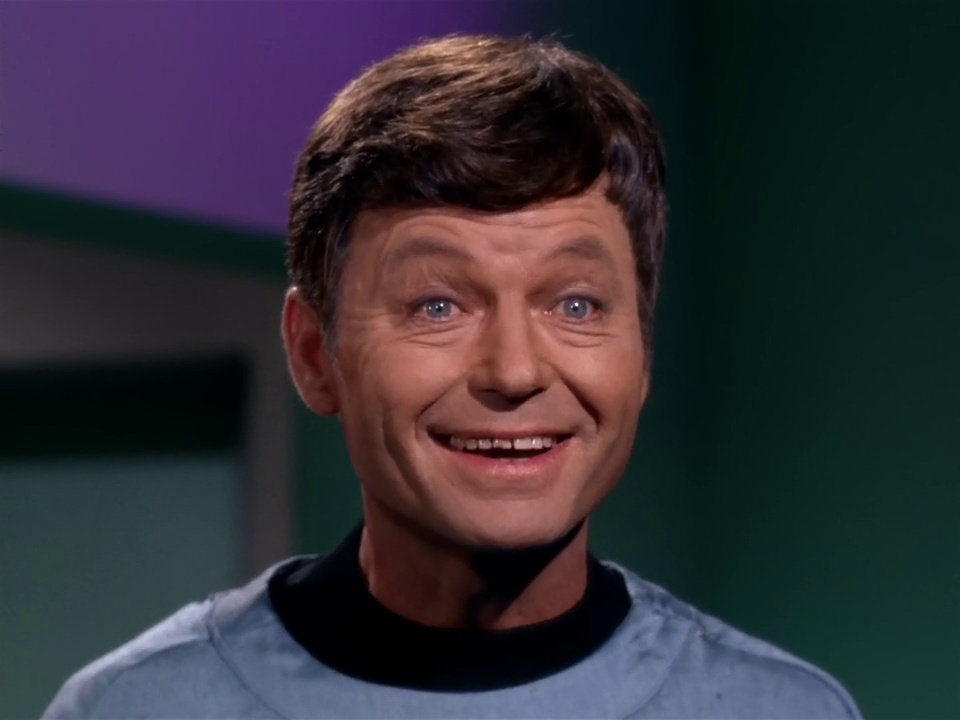
In The Original Series, there were a handful of moments that seemed to break the fourth wall – i.e. where characters within Star Trek seemed to acknowledge the audience, or that what was unfolding on screen might not be real. Dr McCoy was a key part of one of the most (in)famous fourth wall breaks in The Original Series: the closing scene of the Season 2 episode Journey to Babel. In this scene, Dr McCoy remarks that he “finally got the last word,” after shushing Kirk and Spock – seemingly referencing other episode endings in which Kirk, Spock, or another character would say the closing line or remark on what had transpired. Furthermore, McCoy seems to say this while looking *almost* straight into the camera.
Without getting too nitpicky, I think we can debunk this one by explaining that McCoy was simply commenting on Kirk and Spock’s tendency to talk over him in-universe, rather than anything more meta! And the choice of camera angle, rather than hinting at McCoy somehow being self-aware, was merely a close-up. The Original Series did close-up shots like that all the time, and McCoy’s gaze is slightly off to one side, not straight down the lens. There’s nothing in canon to suggest that Dr McCoy is somehow self-aware of his status as a character, and anything that hints otherwise can be written off as a quirk of the show’s production or writing.
Theory #2:
The show T.J. Hooker depicts Kirk’s adventures on a holodeck.
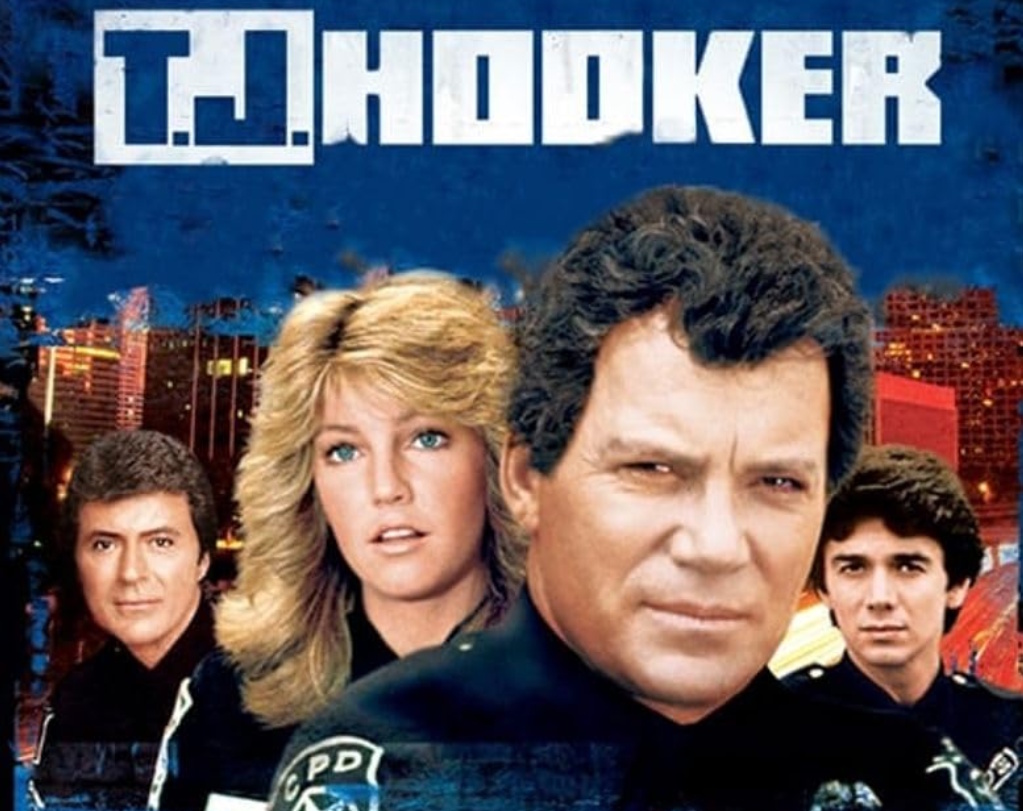
T.J. Hooker stars William Shatner in the lead role, and if you don’t know it, it’s a police procedural show from the ’80s. Besides Shatner’s role, Leonard Nimoy had a small role in one episode (and directed another), and James Darren (DS9′s Vic Fontaine) was a regular character. The series was in production alongside three Star Trek films – The Wrath of Khan, The Search for Spock, and The Voyage Home. But… that’s it. There are no overt references to Star Trek in T.J. Hooker, nor to T.J. Hooker anywhere in Star Trek – at least, not that I can recall.
If fans want to watch the show and make this inference… I mean, there’s nothing stopping you anymore. A few years ago, I might’ve said that the holodeck is a 24th Century creation, but Strange New Worlds has blown that theory out of the water. Holodecks clearly did exist at the time of The Wrath of Khan, and to be honest, I could see Kirk choosing to play make-believe as a cop in the ’80s. Obviously this isn’t and never will be canon… but don’t let that stop you!
Theory #3:
Borg “transwarp” is actually the mycelial network (from Discovery).
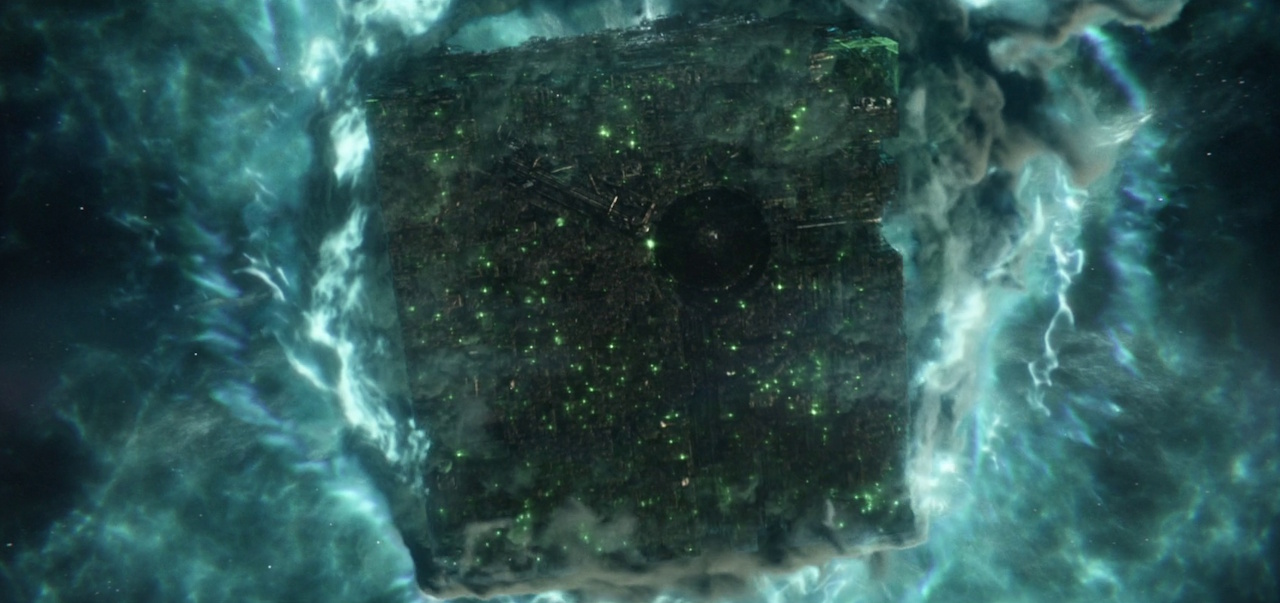
I think we have enough context to fully debunk this one, right? Discovery’s mycelial network and Borg transwarp behave completely differently to one another, with the USS Discovery able to “jump” instantaneously to points across the galaxy, whereas Borg vessels enter a transwarp network and are accelerated to vast speeds. Borg transwarp is way quicker than warp speed and clearly allows for much faster transport than anything 24th or 25th Century Starfleet is capable of. But it lacks the instantaneous movement or the “jumping” effect of Discovery’s mycelial network. So I think that alone rules it out.
One thing that Star Trek’s writers usually do well is keep the intricacies of different technologies pretty vague. We know that dilithium crystals moderate the antimatter reaction in a warp core… but what that technobabble actually means, or how it all truly works, is a mystery. And you could argue that Borg transwarp is even more mysterious; just because no Borg character ever said the words “mycelial network” doesn’t mean they don’t have access to that technology. I will concede that it stands to reason that, if the mycelial network is a known phenomenon in the Star Trek galaxy, the Borg would be aware of it. But that doesn’t mean it’s how their transwarp network operates, and there are enough differences between how they appear on screen as to render this one null and void for me.
Theory #4:
Transporters beam out everyone’s bodily waste.
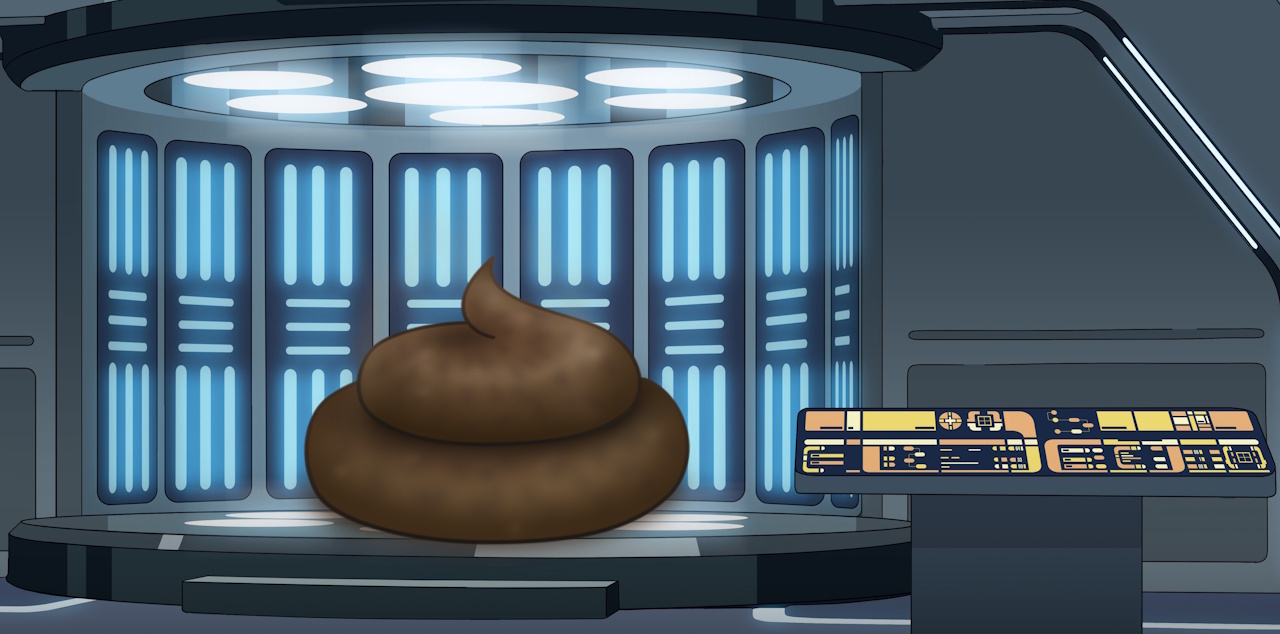
Uh, sure… *that’s* what the Federation uses transporters for. Rather than going to the toilet, no one in the future is potty trained, and instead, transporters automatically empty everyone’s bladders and bowels every time they start to fill up. That’s why you never see a toilet aboard a starship, and why only the most oblique references are made to “waste extraction.”
But… this is just plain *silly*, isn’t it? “Waste extraction” was only ever mentioned in DS9, and only on a few occasions. There are few direct depictions of toilets in Star Trek, but there are references to them. Kirk sits on a toilet (clothed) in The Final Frontier, and Boimler says he dropped his tricorder in the toilet in Lower Decks. If we count non-canon sources, like starship blueprints, toilet facilities can be seen on a few different 23rd and 24th Century vessels, too. There are types of toilet today that don’t use water or a flushing system, and it’s conceivable that, in the future, refinements or brand-new designs could have been invented. Considering the energy cost, the number of transporters required, and the constant need to be in transporter range… I can’t see this being realistic. A fun, jokey idea? Sure. But something to take seriously? No!
Theory #5:
The USS Riker (from Starfleet Academy) is crewed entirely by Will Riker’s descendants.
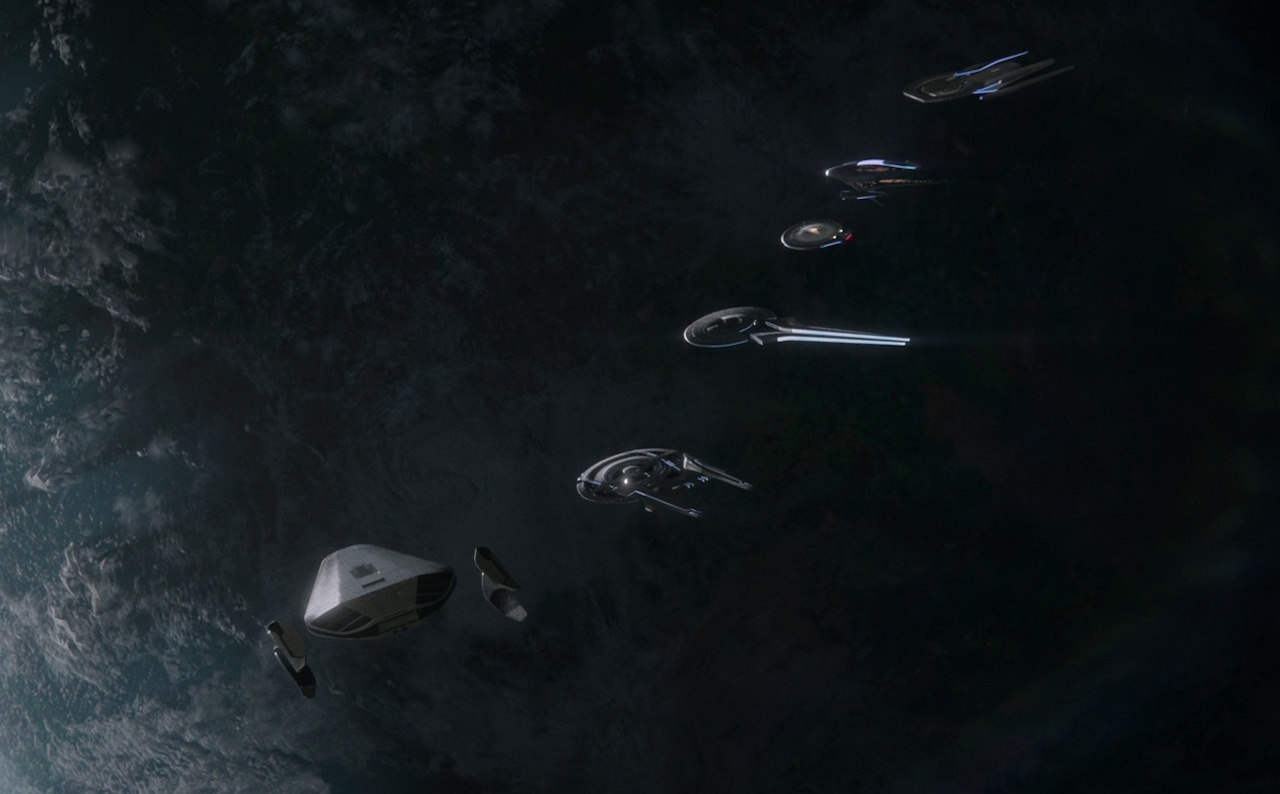
The USS Riker has (at time of writing) appeared in one episode of Starfleet Academy – a blink-and-you’ll-miss-it cameo in Vox in Excelso. Someone online suggested that the Riker’s entire crew are the descendants of TNG’s Will Riker – famous, somewhat, for his womanising ways and romantic liaisons with a variety of different characters across the show’s seven-season run. Riker would later settle down with Deanna Troi, as we saw in Picard, and had two children – only one of whom survived to the dawn of the 25th Century.
But could Riker’s many flings and one-night stands across The Next Generation have led to more… offspring? This theory says so! And while I think it’s a cute joke within the fandom at the expense of how Riker was sometimes written, I don’t think it has an ounce of actual merit. Firstly, we don’t even know for sure that the USS Riker is named for *William* Riker and not some hypothetical other character. Riker’s father, Kyle, also worked for the Federation, the transporter clone known as Thomas may have survived the Dominion War, and Riker’s daughter may also have gone on to achieve something significant, just to give three examples of characters we know to exist. So… this cameo was cute, and appreciated by this old TNG fan. But the idea of a ship crewed entirely by the descendants of Riker’s various liaisons? Silly!
Theory #6:
Discord (from My Little Pony: Friendship is Magic) is actually Q.
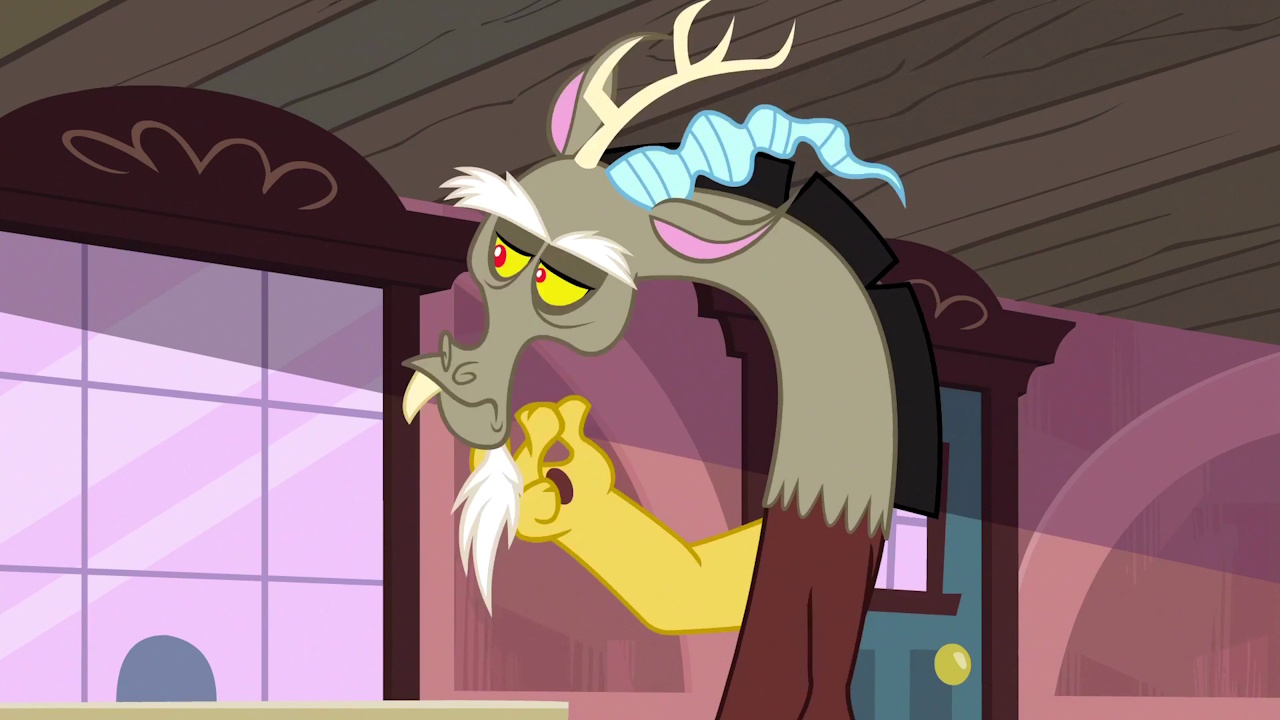
We could’ve done an entire article on *just* theories involving crossovers with other franchises, I guess! But this one really does make me smile, because it’s just so silly. I concede that Q and Discord have some pretty obvious similarities: their personalities, their penchant for trickery, and the fact that they’re both ancient beings who form a bond with a mortal protagonist. But c’mon, guys… these are two completely different franchises with very little in common, totally different target audiences, and which are owned by two competing corporations.
John de Lancie portrays both characters, which is where this idea seems to have originated, but that’s really as far as it can go. The same voice actor has found himself somewhat typecast into playing a role which may have been directly inspired by his earlier character. That’s it. Q can’t exist in a franchise where… Q doesn’t exist. It’s a fun head-canon, I guess, if you’re a fan of both universes. But there’s no way it can be anything more than that.
Theory #7:
Benny Russell is real, and Gene Roddenberry stole Star Trek from him.
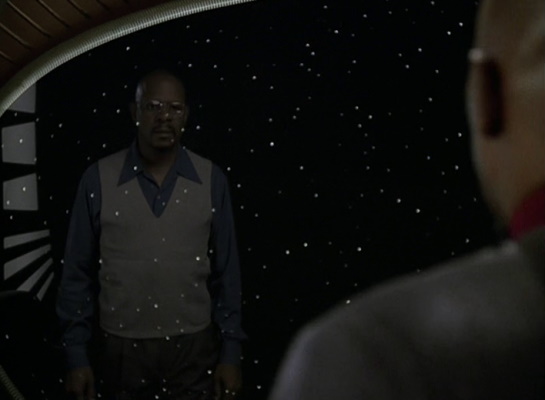
There are a few variants of this theory. Some posit that, in-universe, the episode Far Beyond the Stars suggests that Star Trek as a whole exists as a fictional creation. I don’t agree with that at all (it’s always seemed logical, to me, that Benny Russell is a vision from the Prophets and nothing more), but I don’t, like, viscerally *object* to fans subscribing to that idea or exploring it. But I have seen fans propose – I *hope* entirely in jest – that there was a real Benny Russell once upon a time, and Gene Roddenberry either got the idea for Star Trek from him… or stole it.
If this is a total joke, which I believe it is, then… I mean, sure. Humour is subjective, and just because I don’t personally find it all that funny… I’m not the joke police. I can’t imagine any Star Trek fan taking this idea seriously, though, because it implies that not only did Gene Roddenberry steal these stories and this world-building, but then the DS9 writers – who must’ve known or been in on it – created a fictionalised version of Benny Russell as a character in their show… for… reasons? As a “confession?” A fun joke, maybe, but not something to take seriously.
Theory #8:
Saavik and/or Tuvok are transgender (because of Vulcan naming customs).
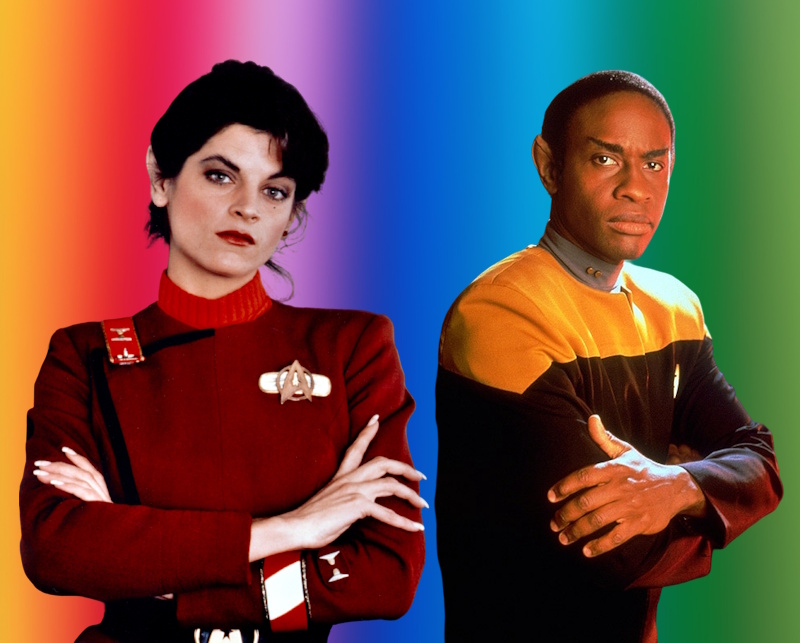
In The Original Series, every named Vulcan we met had a name beginning with S if they were male or T if they were female. But then, in The Wrath of Khan, we met Saavik – the first female Vulcan whose name begins with an S. Cue the fan theories! In short, this theory posits that, because of Vulcan naming conventions that were established in TOS, Saavik and Tuvok “must” be transgender. Saavik would be a trans woman and Tuvok a trans man.
Setting aside the silly premise for a moment, let’s think about this. There are some transgender folks who keep their birth name after transitioning, but it’s more common in the trans community to choose a name more befitting of one’s true gender. For Saavik and Tuvok to keep their deadnames wouldn’t make a lot of sense. Then there’s the fact that there’s absolutely no trans storytelling for either character… at all. In a way, you might say that’s great – that the Federation just accepts everyone and doesn’t make a big deal of it. But for a writer to introduce a character who is intended to be trans and then make no effort to tell a single trans or trans-adjacent story with them? And for fans to have to infer, years after the stories were first told, that these characters are meant to be trans? We’re hitting “Harry Potter” levels of fake inclusivity. If you find something relatable in Tuvok or Saavik as a trans person, I don’t wanna take that away from you. But it’s not how I read either character, and there are other explanations for their names.
Theory #9:
Star Trek V: The Final Frontier didn’t happen; it’s all just Kirk’s bad dream.
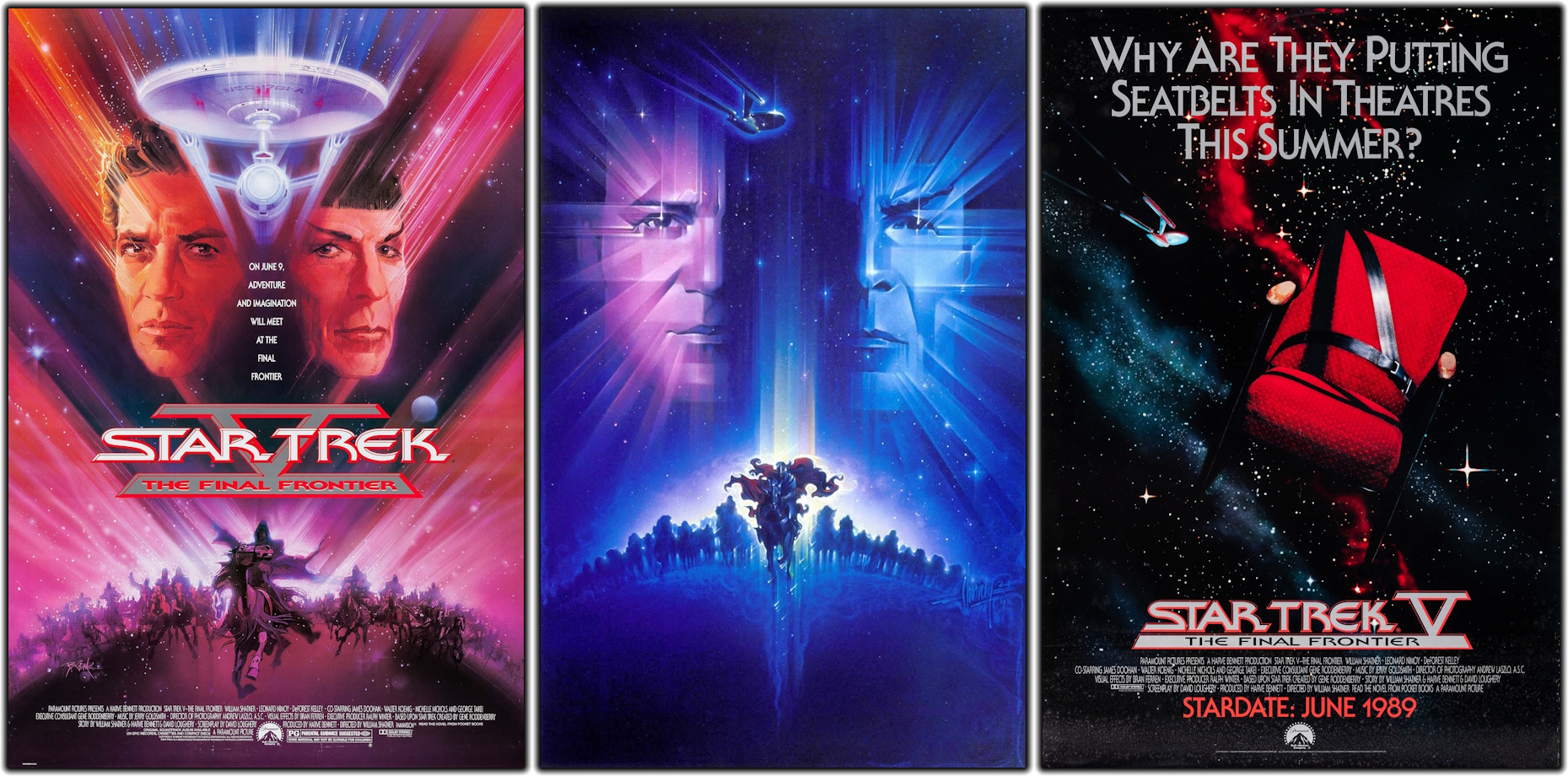
Have you ever taken a creative writing class? One of the first things the teacher warns you about is the importance of avoiding tired narrative clichés… like “but it was all just a dream.” And to me, that’s how this fan theory comes across. I get that not everyone likes The Final Frontier; I personally rank it as one of the lesser Star Trek films, too. But just because it isn’t popular… that doesn’t mean its events can be scrubbed from canon altogether. Not to mention that the film does genuinely have redeeming features and moments of characterisation (like Kirk, Spock, and McCoy camping) that I wouldn’t want to lose.
This theory hinges on Kirk’s starring role, and the fact that some of his worst fears seem to come true. Sybok’s presence (and Spock never having mentioned him) seems to threaten their special bond. His ship is stolen from him. Members of his own crew turn against him. And there are discrepancies, like the number of decks the Enterprise-A seems to have, or the “Galaxy-class” feel to the ship (caused by recycling sets from The Next Generation). But to me, this one feels like wishful thinking at best… or clutching at the tiniest of straws at worst.
Theory #10:
Nick Locarno and Tom Paris are the same person.
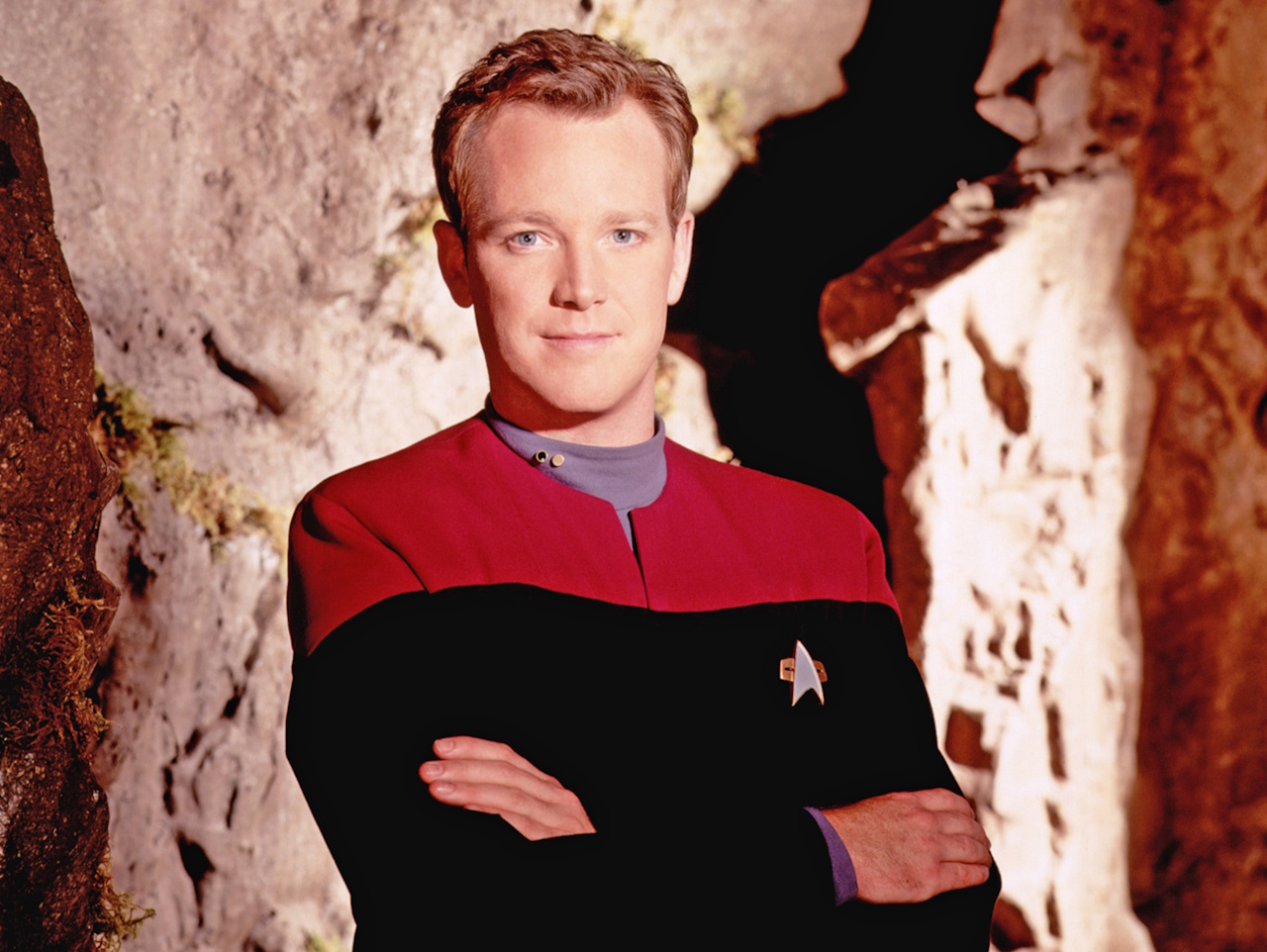
I think it’s safe to say that Lower Decks has debunked this one (though I still need to get caught up on that show!) But before Locarno made a return to Star Trek, fans speculated that “Nick Locarno” was actually a pseudonym adopted by Tom Paris prior to enrolling in Starfleet Academy. The theory went that Paris wanted to keep his connection to his father (who is a senior officer) a secret – either to be judged on his own merits, or for some other reason.
There are similarities between Locarno and Paris, besides the obvious point that both characters were played by Robert Duncan McNeill. They’re both able pilots, they both have a cocky or arrogant streak, and both have an ambivalent relationship with the Federation and its rules. On the production side of things, it’s long been rumoured that Voyager’s creators wanted to use Nick Locarno, but were concerned about having to pay royalties to the writer of The Next Generation episode in which he originated, so a new, very similar character was created. A photo of McNeill in his role as Locarno can be briefly seen in Voyager, representing a younger Tom Paris in his father’s office. So there’s merit to this in theory… but Lower Decks has completely debunked it by now. And if it were true, I’d have expected Paris to have said so, or for it to have been noted by Janeway early on in the series. The “Locarno” persona might’ve worked for a while, but the scandal would surely have blown his cover, and his identity would be common knowledge by the time of Voyager – at least among senior officers.
Theory #11:
Section 31 isn’t a real Federation organisation – it’s a criminal syndicate pretending to be one.
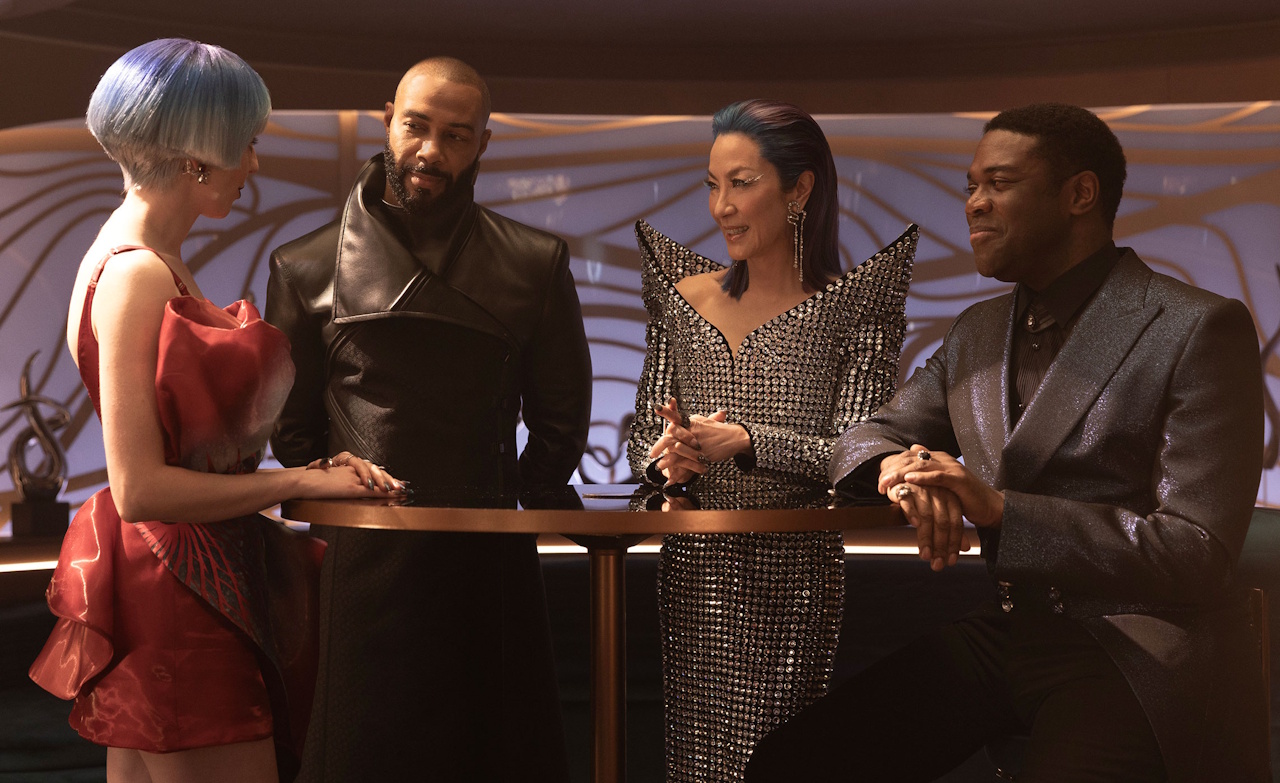
The way Section 31 has been depicted in Star Trek has fluctuated a lot. There’s been the clandestine, shadowy agency we encountered in DS9 and later in Enterprise. Then there’s the out-in-the-open branch of Starfleet Intelligence from Discovery. And finally, the “rag-tag gang of misfits” from the TV movie. But one thing that has remained consistent in Section 31 is that the people involved are all Federation die-hards doing things they believe to be in the Federation’s best interests… even as they answer to no one and wield almost unfathomable power.
I can see a world in which a criminal syndicate would side with Starfleet to help prevent, say, the Federation’s total conquest by the Dominion. Or in which Starfleet would make deals with shady crime lords to acquire some kind of biological weapon when faced with an existential crisis. And I can even see a world where a clever criminal would *claim* to be from a government agency or black-ops division as a tactic. But do any of those things apply to Section 31? I would argue no. The closest Section 31 has come to that kind of presentation came in the TV movie, but even then, it was clear that Starfleet was involved – albeit that the mission was still off-the-record. So this idea is simply debunked by what we’ve seen on screen – as fun as it might seem.
Theory #12:
Jean-Luc Picard is Wesley Crusher’s biological father (and he treats him the way he does out of a sense of guilt or obligation).
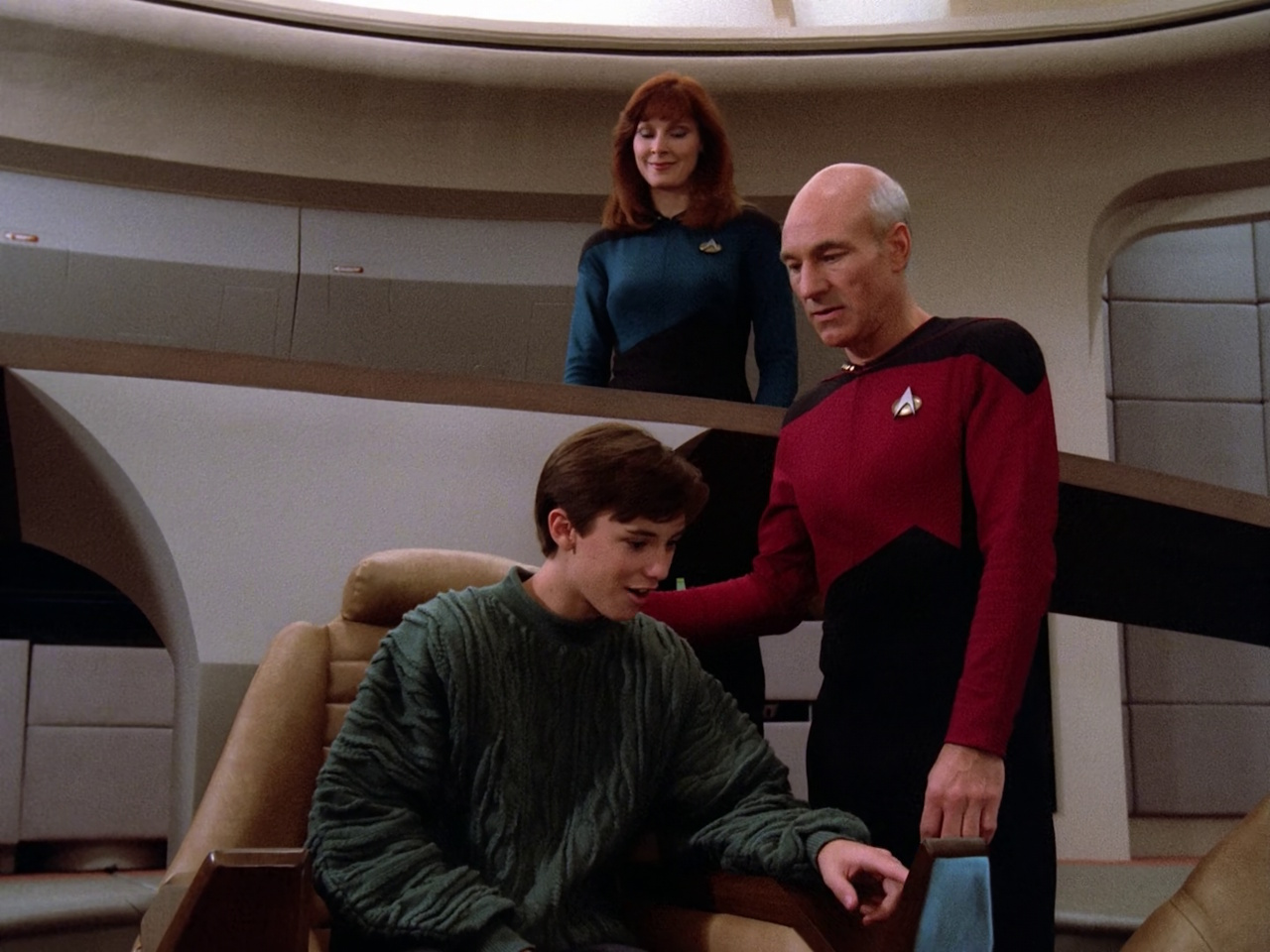
Sometimes you come across a theory – even one that’s been doing the rounds for years – and you just feel… gobsmacked. I simply don’t read Picard and Wesley’s relationship in this way, and any paternal feelings Picard has for the younger Crusher is pretty clearly explained within the context of the show as stemming from his close friendships with Jack and Beverly. Picard does come to appreciate Wesley’s talents, even giving him a role on the bridge of his ship… but not out of any kind of obligation or guilt – it’s in recognition of Wesley’s skills.
I will admit that Picard’s third season complicated my rebuttal somewhat, as we learned that Picard and Dr Crusher did have a child together, and that Dr Crusher kept this a secret. If she did it once, could she have done it years earlier? It could have been an interesting plotline in The Next Generation or even in Picard, if it had been handled well, but despite having some merit in theory, nothing in the show itself leads us to that conclusion. And such a complex story would require a very sensitive and well-written episode or arc, and I’m not sure it would’ve been handled well or been well-received by a large portion of the fanbase. So this one… it can be your head-canon, if you like, but it goes no further in my opinion!
Theory #13:
The Progenitors evolved into the Founders.
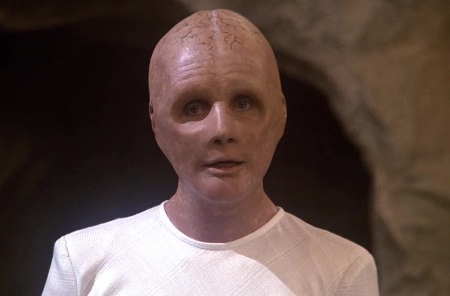
I don’t know if this theory came about because the same actress (Salome Jens) played both the ancient alien hologram in The Chase and the Female Changeling on DS9, but I suspect that has something to do with it! In any case, this theory posits that the “Progenitors,” as Discovery would later dub them, didn’t go extinct or disappear from the galaxy, but instead evolved to become the Founders of the Dominion. And on the surface, it doesn’t seem totally impossible. The Founders claim to have once been fully solid. And the Founders are capable of genetically engineering entire races. But if the Founders *were* descendants of the ancient aliens who seeded the entire galaxy with life… you’d think they might’ve mentioned it.
For me, that’s where this theory falls down. Something so monumental to who the Founders are – and most Founders seem to be almost ageless – would surely be preserved knowledge, handed down through the millions of years of their existence. Yet the Founders not only don’t bring this up, but they’re distrustful of any non-shapeshifters to the point of paranoia – not something you’d expect to see in the grandparents of the galaxy’s races. I don’t really like the way the Progenitors’ storyline went or what it says about the Star Trek galaxy, and perhaps that’s my own bias showing through when I rule out this theory. But I do believe that something so important would be known to the Founders, and it would be something they’d have at least tried to communicate in their various dealings with “solids.” Not to mention that, for a race that would need to be billions of years old… it’s weird that their technology got to a 24th Century level and apparently stayed there.
Theory #14:
Every film and episode that premiered after First Contact takes place in an alternate reality, due to the changes made to the timeline.
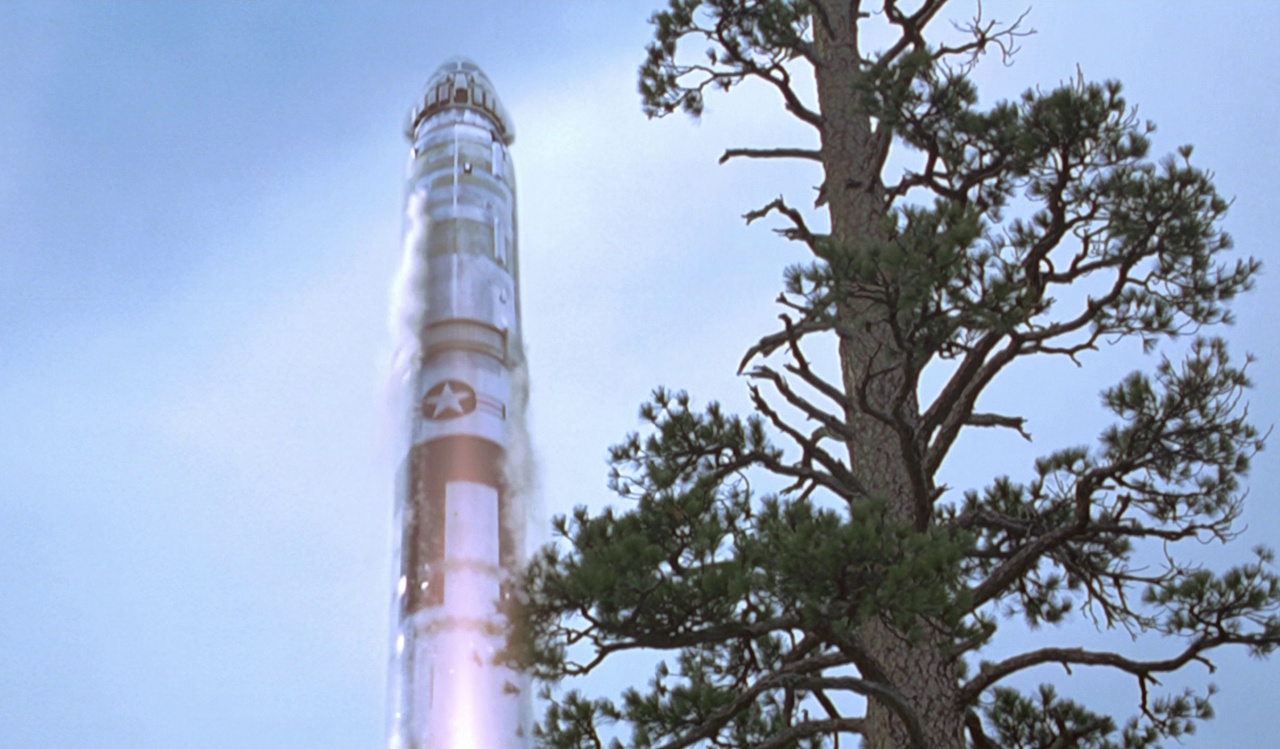
Time travel is a pain in the arse, isn’t it? Time-loops, paradoxes… all of that. It’s very difficult to write a compelling time travel story and pull it off flawlessly – even more so in a long-running franchise with a timeline that has to be basically consistent from one episode to the next. This theory posits that the changes Picard and co. made in the 21st Century were so serious that the Star Trek franchise can essentially be divided into two alternate realities: pre- and post-First Contact stories.
I don’t know how to word this without using terms like “destiny” or “fate,” but I think the way we’re meant to read the events of First Contact is that the interventions by the Borg and Enterprise-E were always “meant” to happen; i.e. they happen in every timeline. That’s why there was no Department of Temporal Investigations inquiry, and no ramifications for Picard for meddling in the timeline. We could also ask why First Contact should be the divide – why not other time travel stories, like The City on the Edge of Forever, Assignment: Earth, Past Tense, or even Endgame. All of these made major changes to the timeline that, by the same logic this theory uses, could create an alternate reality.
Theory #15:
Discovery Seasons 3-5 didn’t happen – and what we saw are Pike’s imaginings during his convalescence on Talos IV.
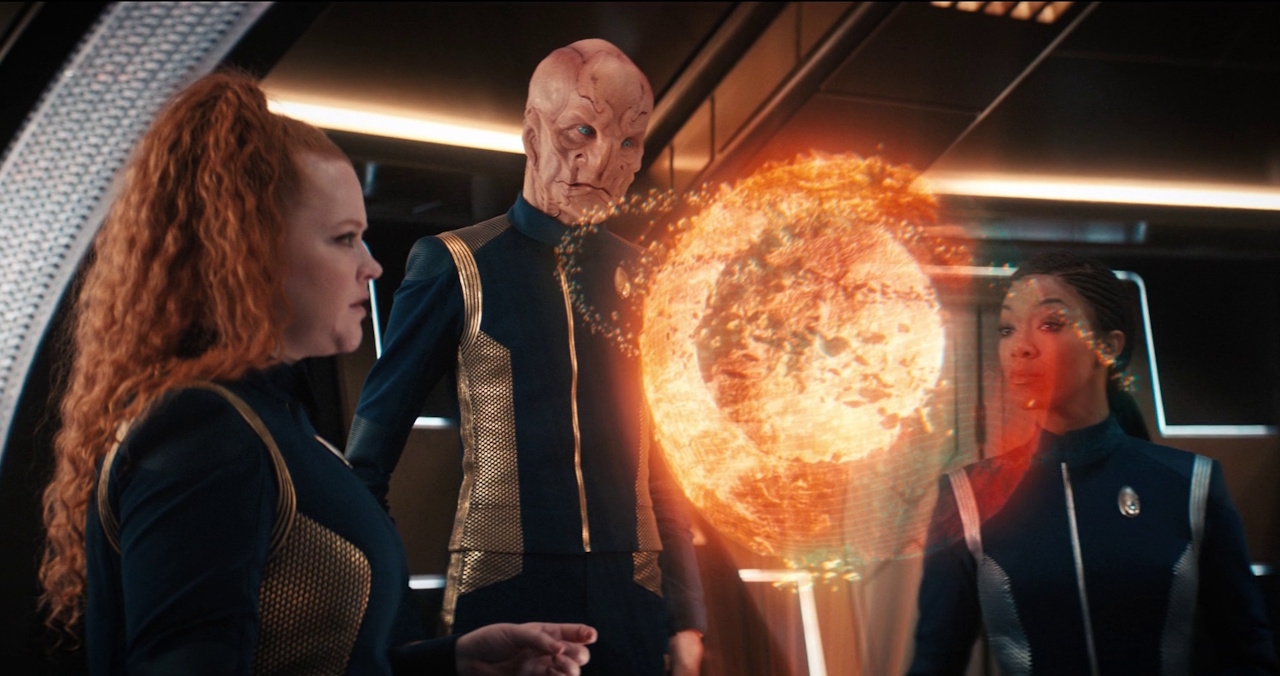
I don’t see how you could subscribe to this theory without also writing off Starfleet Academy, Section 31, and probably Strange New Worlds, too, as they’re all connected. But setting that aside… this theory reminds me more than a little of the Star Wars so-called “theory” that one or more of the sequel trilogy films is “about to be removed from canon!!1!” In short, it feels like a bit of a cope from folks who don’t like Discovery, the 32nd Century setting, and in particular, the Burn.
My personal view, by the way, is that – somehow – a future Star Trek production should find a way to gently push Discovery’s 32nd Century out of the prime timeline, partially because of how depressing the Burn is as a future destination, but also because of how it turns any potential future film or TV show into a de facto prequel to Discovery. But that isn’t the issue here: this theory posits that nothing we saw on screen in Discovery’s 32nd Century actually happened to begin with. That simply isn’t true; Discovery, Strange New Worlds, Section 31, and Starfleet Academy all coexist in the prime timeline. You can choose to disregard different parts of Star Trek from your personal head-canon; fans have been doing that for decades. Or you can choose not to tune in to any new shows set in that era. That’s totally okay. But this theory can be nothing more than head-canon, and a heavy hit of copium for folks who hate where Discovery went.
Theory #16:
Dr Zimmerman used the Professor Moriarty hologram when creating the EMH.
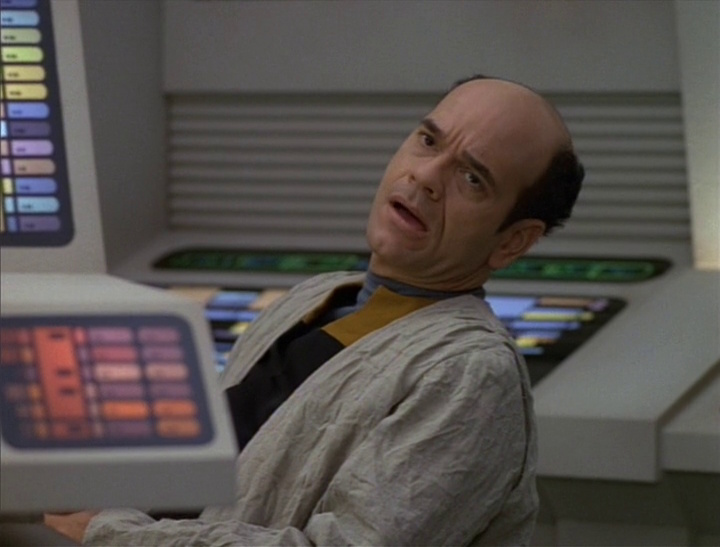
In the episode Elementary, Dear Data, we saw the creation of a sentient, self-aware hologram: Professor Moriarty, Sherlock Holmes’ nemesis. Moriarty would later be re-activated and trapped in a holographic world, before apparently being transferred to Section 31’s Daystrom Station by the early 25th Century. As one of the first truly sentient holograms, it’s not impossible to think Starfleet would’ve wanted to study Moriarty, figuring out how a simple miscommunication with the Enterprise-D’s computer could lead to such an entity coming to exist.
This theory goes a lot further, though, suggesting that Dr Zimmerman – the creator of the EMH programme – used Moriarty in some way, either as a “template” or just to further his own research. And while nothing on-screen explicitly contradicts this idea, it’s just not something I think makes a ton of sense. Zimmerman is presented as egotistical and selfish, so the idea that he’d rely on someone else’s work instead of developing his own holograms doesn’t make a lot of sense. And it’s strongly implied in DS9 and Voyager that the EMH Mark I (i.e. the Doctor) had a long and difficult creation process, with some of Zimmerman’s more basic holograms coming first. So while the idea of Starfleet researching Moriarty makes sense, I don’t think Zimmerman being involved really does.
Theory #17:
Enterprise’s mysterious “Humanoid Figure” is Archer from the future, and he’s trying to sabotage his own earlier missions. For some reason.
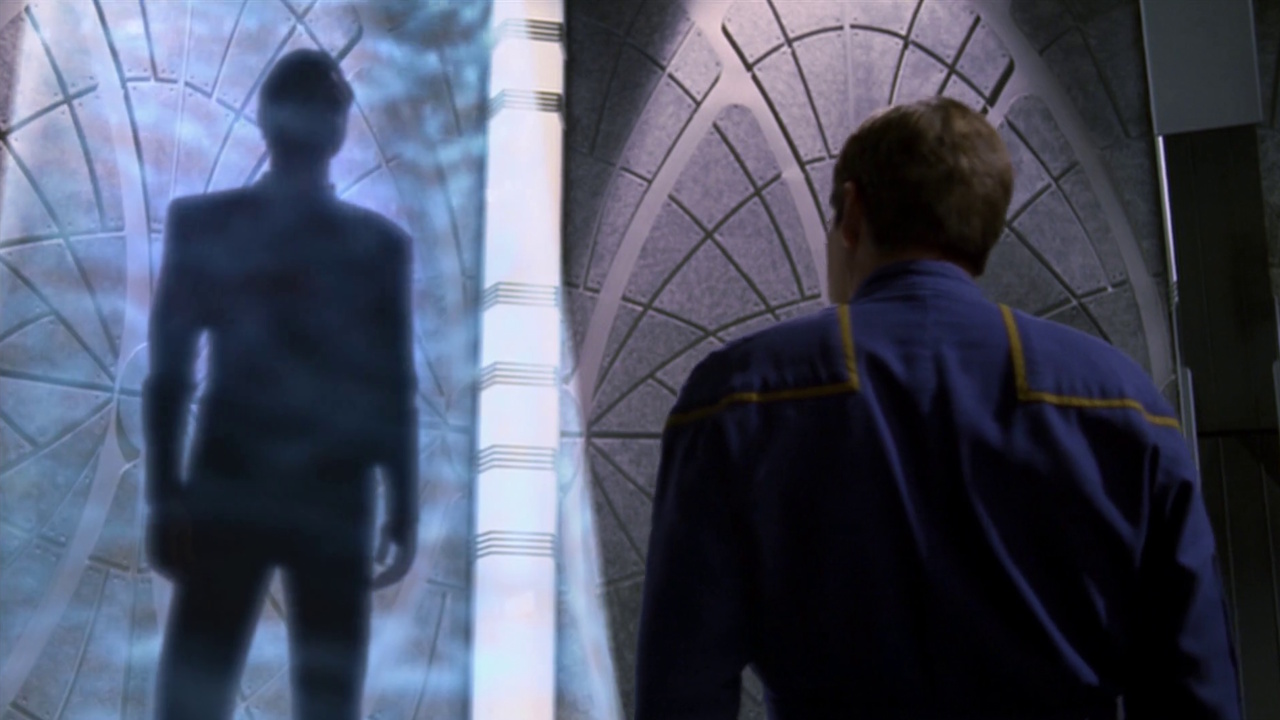
This theory has the benefit of having been discussed by some of the original writers of Enterprise – with a suggestion that this was even a seriously-considered plot point for what would’ve been Season 5. But as we said above: time travel, time-loops, and paradoxes are really difficult to get right, and the idea of an older, jaded Archer somehow deciding that he wants to sabotage his own earlier mission and his own life… such a story would be difficult to write in a way that made sense, and it would be a challenge to pull it off successfully.
I’ve always interpreted the “Humanoid Figure” as simply being one of the leaders of a faction from the Temporal Cold War/Temporal Wars, though to be honest, I try not to think too hard about this element of Enterprise. Time travel stories just aren’t my favourites in Star Trek, and a significant portion of Enterprise was taken up by these kinds of plotlines. If the “Humanoid Figure” was meant to be Archer – which he wasn’t, at least not originally, as no identity was built into the character at first – it raises too many questions, and would realistically have needed a multi-episode arc. Given what we know of Archer’s future – his captaincy of the NX-01 and his later role in the founding and leadership of the Federation – this villainous turn (and his apparent acquiring of time travel tech) doesn’t make sense, and I struggle to see how a story could be written to take Archer from the textbook definition of a Starfleet captain to a man who tries (and fails) to sabotage… himself.
Theory #18:
We (the audience) are living in the timeline that ultimately becomes the Mirror Universe.
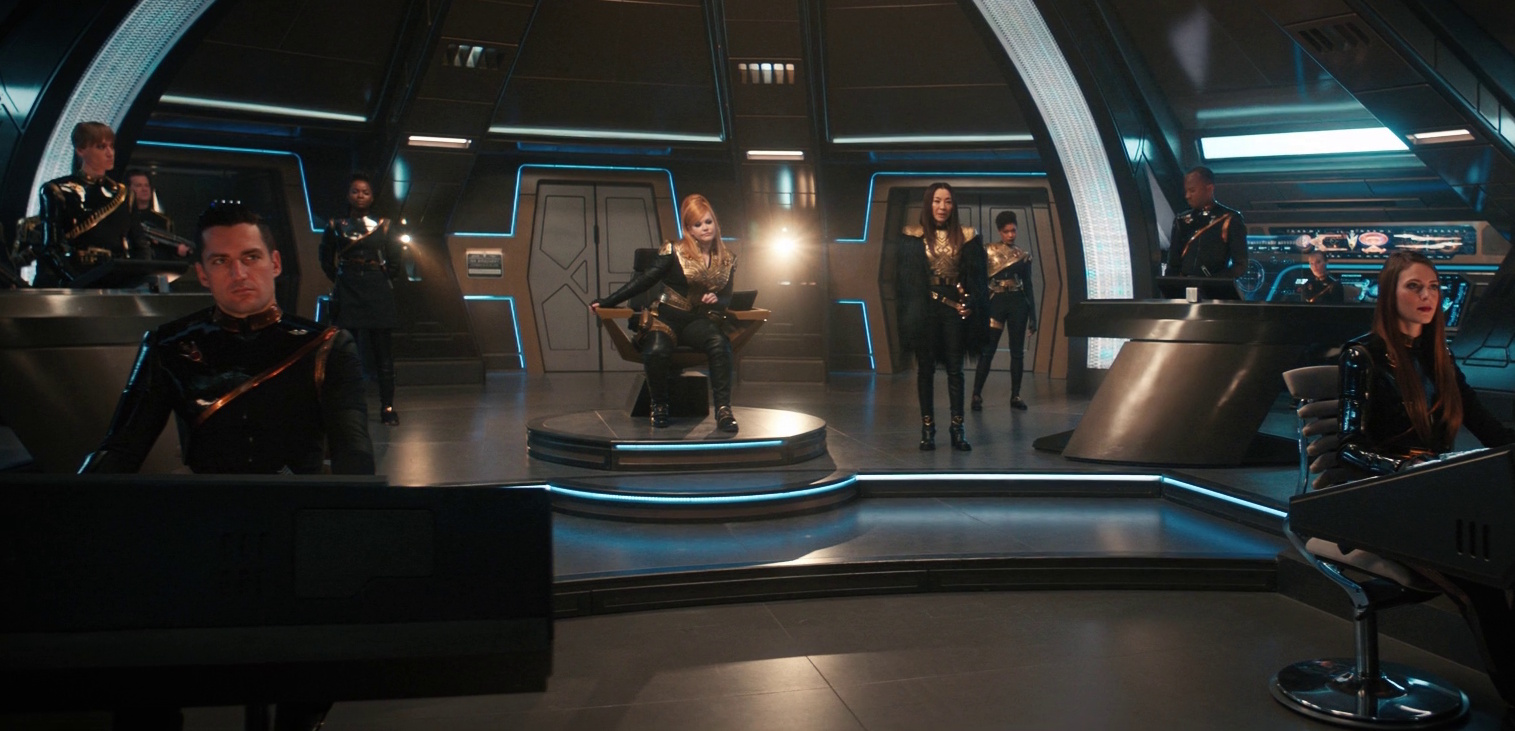
Do you ever read something and just think to yourself, “god, you were *so close* to understanding the point… but then you blew it?” The Mirror Universe is *intended* to be uncomfortably close to reality – any sci-fi dystopia is! That’s the point of the genre, and Star Trek’s Mirror Universe is meant to be a mirror (get it?) of our current society’s darkest impulses, moral failings, and inclination towards autocracy. That’s the entire point! It’s Star Trek showing us a dark reflection of ourselves to make us pause and think.
If you see elements of the Mirror Universe in today’s world, that isn’t because we’re in some dark timeline that Star Trek predicted… it’s because the stories were deliberately written that way to show us some of our own failings and societal problems. The point isn’t to fall into depression and pessimism, to say that we’re on a dark path and there’s nothing we can do but wait for the Terran Empire to emerge. We’re meant to look at these stories and say, “let’s do something about that. Let’s make changes for the better.” The Mirror Universe, with its pantomime-level overacting and one-dimensional baddies, has never been my cup of tea, and as a metaphor I think it’s almost too basic and too unserious. But in a way, that’s part of how it works: it’s storytelling by fable. The point was never that we’re locked into a dark path to the “bad outcome,” the point is that we have these dark impulses, but we can overcome them. Bad things can happen, and bad leaders can rise to power – but we can stop them.
Theory #19:
The Genesis Device and replicators are the same technology.

This one made me smile. In a way, I like the idea of Starfleet looking at the Genesis Project and saying, “yeah, let’s not use it to terraform planets, let’s use it to make bowls of tomato soup.” It’s just kind of small-scale and silly. And it’s true that, out here in the real world, technological innovation often comes from unexpected places. An attempt to create a high-strength adhesive famously led to the weak glue used for post-it notes, for instance!
Star Trek works best when its technologies are deliberately kept vague. That allows for maximum wiggle-room when telling a story, and it also allows for head-canon like this to exist. I guess you could say that, based on what we know of both the Genesis Device and replicators, they both use subatomic particles to change one form of matter into another. But does that mean that one was developed from the other, or that Starfleet shut down Project Genesis only to use the same technology in a totally different way? I don’t see it.
Theory #20:
The entire Soong family are clones – which is why they all look the same.
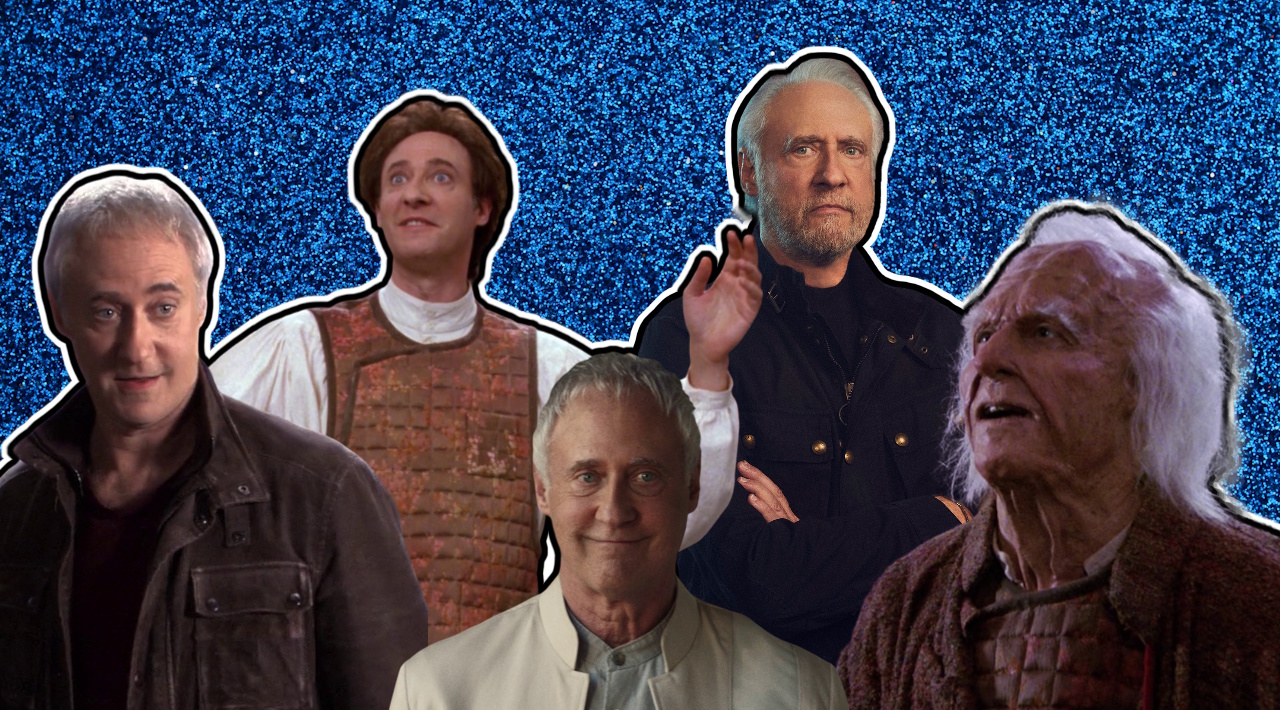
This theory exists for one reason and one reason alone: every member of the Soong family that we’ve met is played by the same actor! Brent Spiner took on the role of Data’s creator in The Next Generation, and this was later expanded in Enterprise and Picard to include new ancestors and descendants of the Soong family. They all look the same because they’re all Brent Spiner. But could there be more to it than that?
Adam Soong, the earliest-known Soong ancestor, was interested in genetic engineering, so could he have cloned himself in the mid-21st Century, sometime after the events of Picard’s second season? I mean, it’s not *impossible*, I suppose. But we know in the prime timeline that genetic engineering has been outlawed, so the practice can’t have continued through the generations all the way to Altan Soong in the late 24th Century, surely.
Theory #21:
Worf has an incorrect (or incomplete) idea of what it means to be a Klingon, because he only learned about his culture from Federation books.

Worf is a Klingon… but he was raised from a young age by humans. That’s a core part of his character background, and having lived away from his homeworld and his people, Worf can feel torn between his loyalties to Starfleet and to the Klingons. But does Worf truly know what being a Klingon means, having only learned about his culture from books? Some fans seem to think he doesn’t, arguing that it explains why Worf seems to lack the famous Klingon sense of humour, being very dour and serious almost all of the time. Others have even suggested that Worf might have a form of “Klingon autism.”
There is the kernel of an interesting idea here, and I think it could’ve been fun to put Worf into a Klingon story as a “fish out of water,” or better, as someone who *thinks* they know everything… until they’re confronted by people who’ve been immersed in that culture from day one. But Star Trek never went down that route, and there are other examples of stoic Klingons who share some of Worf’s traits. It’s an interesting theory, in some ways, but we’ve spent so much time with Worf over the years, and he’s had so many encounters with a huge number of Klingons, that if this theory were even close to true… we’d have seen something more concrete.
Theory #22:
Romulans are the “true” Vulcans, and Vulcans are the ones who left.
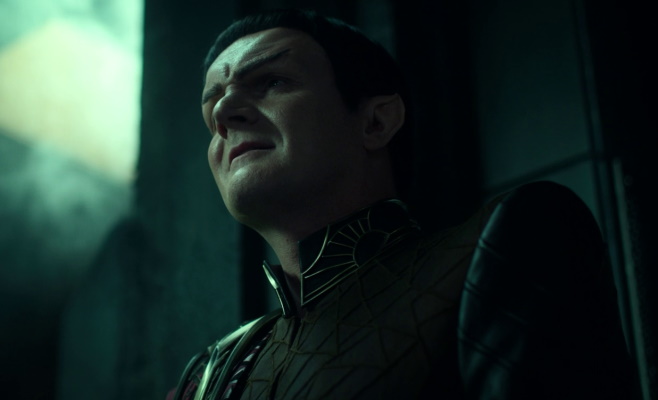
This just flat-out isn’t true. It’s established multiple times in Star Trek that the Romulans were the ones who left their homeworld behind after rejecting the Vulcans’ moves to embrace logic and purge their emotions. Now, if this theory had said that Romulan culture is the original Vulcan culture, I guess we could have more of a conversation, because there’s a way to read the Romulan-Vulcan split that would say the Romulans preserved a pre-Surak, pre-logic culture that the Vulcans may have possessed. But that’s never been confirmed on screen.
What I think would be a way more interesting theory is this: the Vulcans have *always* known the Romulans’ true identity, but chose not to share that with Earth and humanity, perhaps out of a sense of shame or fear. I think there’s a great case to be made that the Vulcans either kept track of the Romulans or else were able to scan their bio-signs, analyse their language, or something after re-encountering them. It’s always seemed likely to me that Vulcan leadership, at least, was aware of their shared history – even if individuals like Spock may not have been. But this idea that the Vulcans are the offshoot… it just doesn’t line up with what we’ve seen on screen in many different stories.
Theory #23:
There is no “Q Continuum;” there’s only one Q, and after billions of years of isolation and loneliness, he’s developed some kind of multiple personality disorder.

Again, we have a theory that directly contradicts things we’ve seen on screen. As far back as The Next Generation, Q was confirmed to be just one member of a species, and we even met other Q in the show. I guess this theory would also propose that all of those individuals were the same Q, but that doesn’t make a lot of sense, does it? Nor does the idea of a Q civil war, as seen in Voyager, or one member of the Continuum committing suicide. If we’d only met Q a few times, and never seen other members of his race, I’d at least have to concede that this one was plausible. But having met dozens of other Q and literally visited the Continuum itself… I think there’s more than enough evidence to dump this one in the “debunked” pile.
There are mysteries associated with Q, though – not least what became of the familiar John de Lancie character after his apparent “death” in Picard’s second season. I just don’t see this as being a plausible theory, or even something mysterious at all. The Q Continuum exists, other Q exist, and trying to overwrite that would mean dozens of stories would be adversely affected. It’s an interesting thought, for sure, but one that just feels thoroughly debunked by what we see on screen.
Theory #24:
The species that abandoned Armus were the Founders.
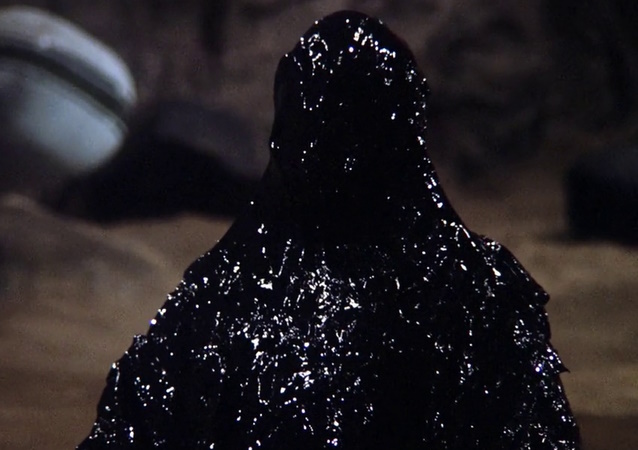
This theory obviously comes from Armus and the Founders both existing in a liquid state, and I can see why it might seem plausible on the surface. But there are two pretty big issues which, in my view, render it null and void. Firstly, Armus lives in the Alpha (or Beta) Quadrant, whereas the Founders and Dominion are native to the Gamma Quadrant. Without access to the Wormhole (which the Founders canonically did not know about until they met the Federation), that’s a decades- or centuries-long journey.
Secondly, and perhaps most importantly, if the point of creating and abandoning Armus was for the Founders to shed their “skin of evil,” and to leave all of their negative traits and qualities behind… it didn’t exactly work, did it? The Founders are paranoid, hateful, and view themselves as superior to most other forms of life. So… how is Armus alone the sum total of all of their negative qualities? Between that and the distances involved, I have to say that I don’t find this one to be plausible. The fact that both the Founders and Armus are liquid doesn’t do enough to outweigh that.
Theory #25:
Apparent discrepancies between The Original Series and the rest of Star Trek are because TOS is a holonovel being viewed from the 24th Century.
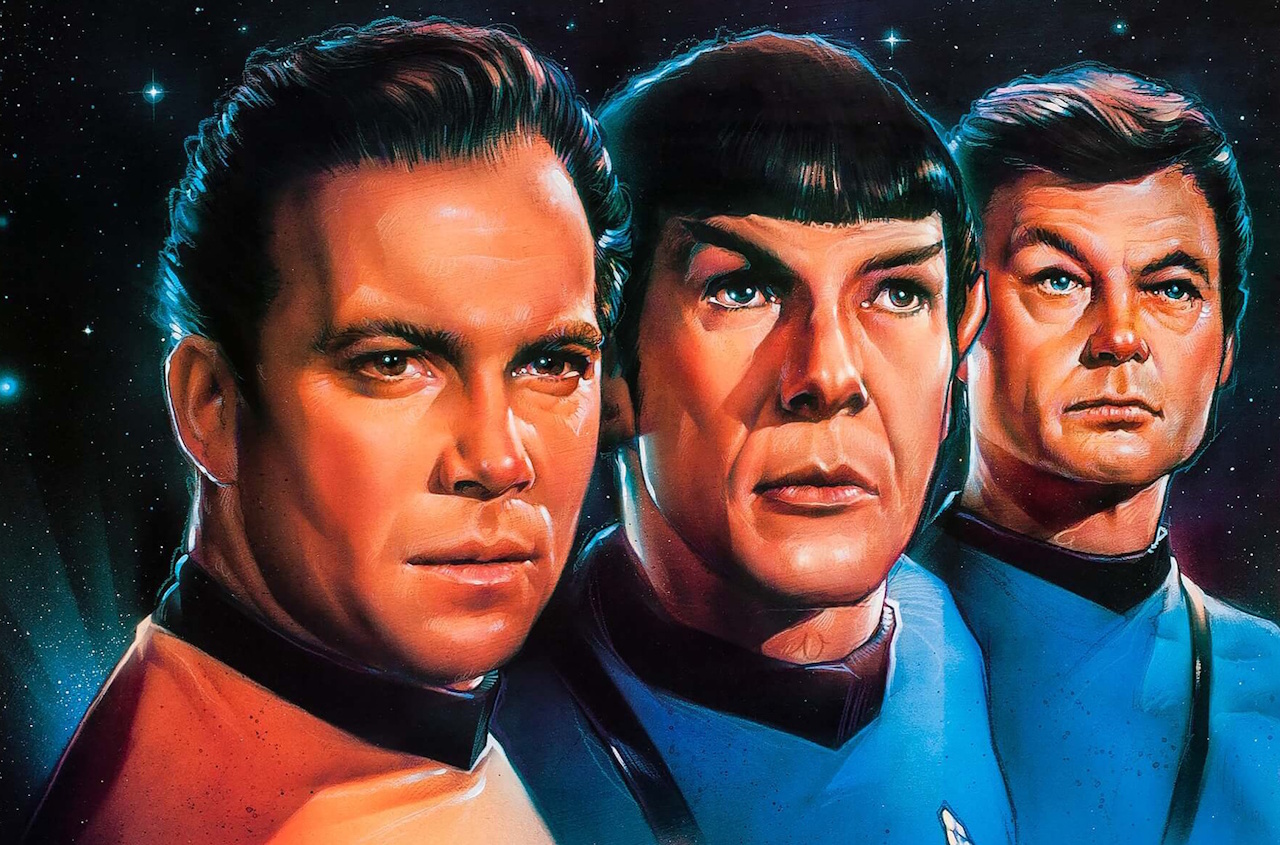
I admire the lengths some fans are willing to go to in order to smooth out inconsistencies in Star Trek’s canon. A similar theory states that These Are The Voyages didn’t happen as shown, because it was an exaggerated or misremembered holo-programme. But in this case… I mean, firstly there’s just no evidence at all that a single part of TOS is a holo-programme. Then there are episodes like Trials and Tribble-ations, which very clearly show that TOS and the 24th Century share a setting. And while there can be inconsistencies within Star Trek’s canon, I’m not even convinced at this point that the line should be drawn between TOS and the rest of the franchise. Why not between, say, Voyager’s finale and everything that came after?
This will sound unsatisfying, especially for folks who love to theorise – and I get that, believe me. But the plain and simple fact is that these discrepancies and inconsistencies exist because Star Trek is a long-running franchise, and these are stories. Sometimes, a new story seems to overwrite or retcon something, or makes a change that’s inconsistent with what came before. While I have argued in the past that internal consistency is important, I’m also not a stickler for the tiniest minutiae of canon, and I believe there’s enough wiggle-room in Star Trek for all of the various parts of its universe to coexist in a single setting.
So that’s it… for now!
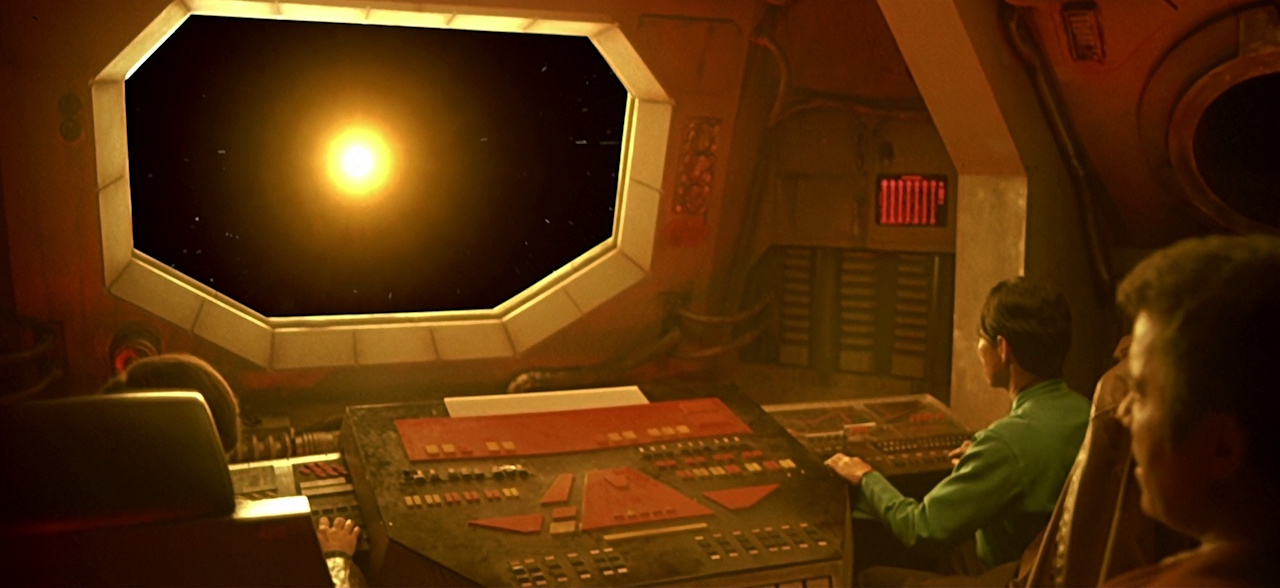
I hope this has been fun. Twenty-five theories was a lot, but at the same time… I feel there’s more to this idea. So if your favourite bad theory didn’t make the cut, stay tuned. I may revisit this concept in the future, if I can find more fan theories to pick on.
As I said at the beginning, this was meant to be a bit of fun, and not something to get too wound up or upset over. While I don’t personally subscribe to any of these theories – for reasons I’ve tried to explain – I found all of them to be interesting, and I don’t want to dent anyone’s passion for Star Trek. I’m a theory-crafter myself, so I respect and appreciate other folks putting their theories out there to be discussed.
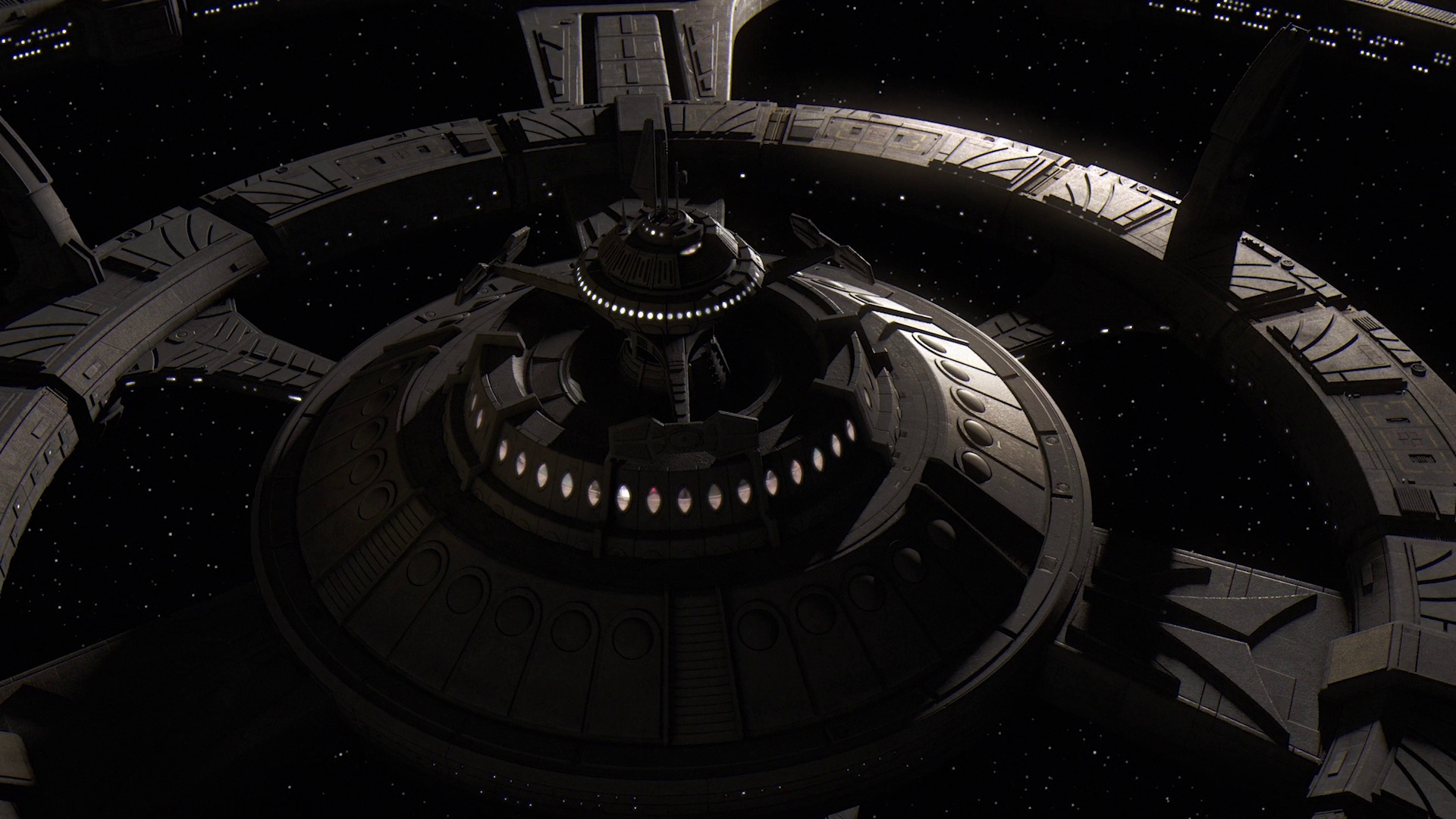
I’ve got a few more ideas for articles and columns as Star Trek’s huge sixtieth anniversary year rolls on. How many TV shows and franchises can say they’ve made it this far, eh? Not many, that’s for sure! It’s a testament to how amazing this franchise is that so many years later, people like us are still discussing and debating every aspect of Star Trek, and still enjoy getting lost in this fantastic setting.
So please stick around throughout 2026 for more pieces celebrating all things Star Trek! Next month, I daresay I’ll be writing a review of Starfleet Academy’s first season. And I’m still hopeful we’ll see Strange New Worlds before the year is out. And there are other theories, discussions, and episode re-watches to get into, too.
Thanks for tuning in this time… and Live Long and Prosper, friends!
The Star Trek franchise – including most films and TV series discussed above – can be streamed now on Paramount+ in countries and territories where the platform is available. Many are also available on DVD and/or Blu-ray. The Star Trek franchise is the copyright of Skydance-Paramount. This article contains the thoughts and opinions of one person only and is not intended to cause any offence.



